Shows
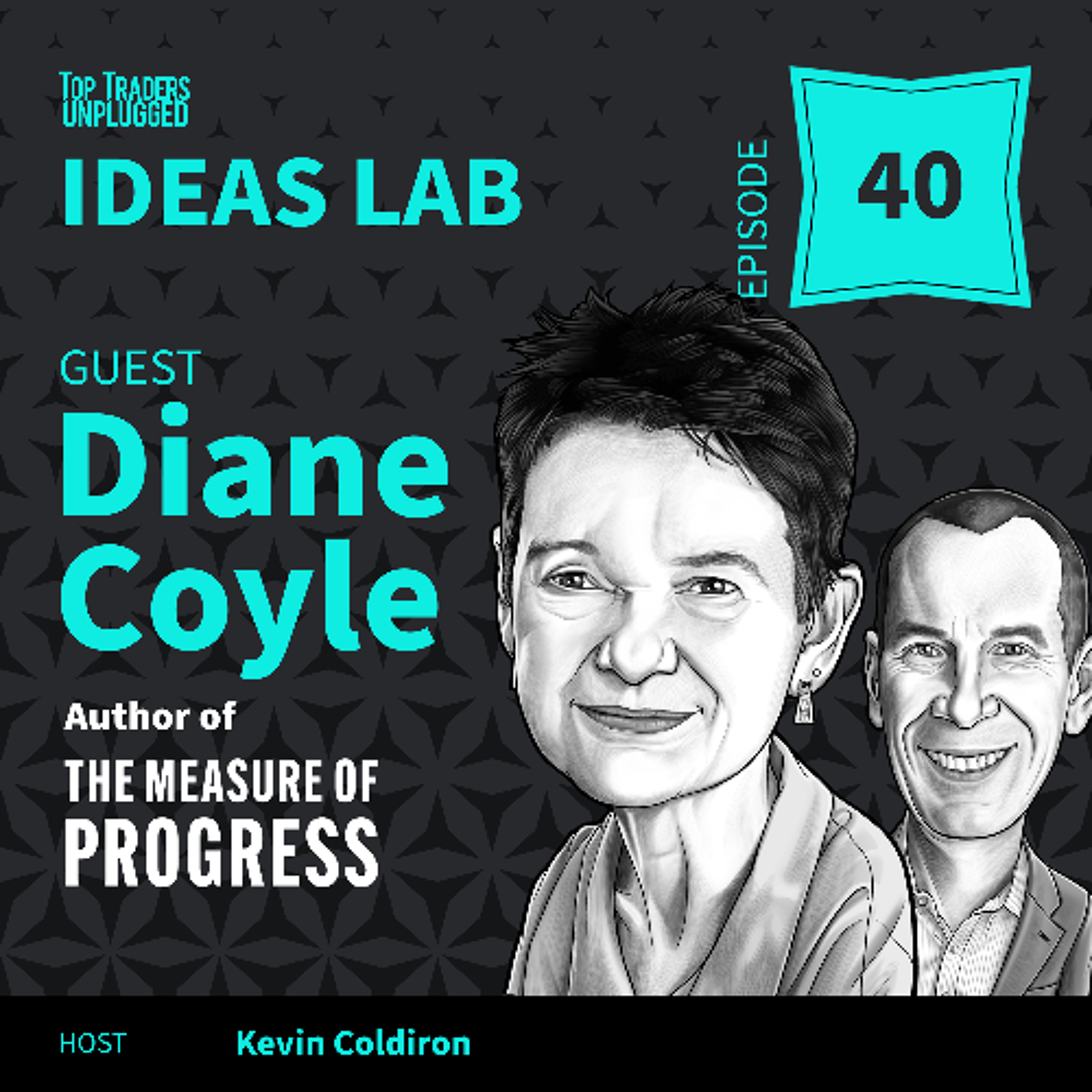 TopTradersUnplugged.comIL40: Why the Economy Feels Broken... Even When It’s Growing ft. Diane CoyleWhat if our most trusted economic statistic is pointing us in the wrong direction? Diane Coyle joins Kevin Coldiron to explore why GDP - long treated as a proxy for progress - now obscures more than it reveals. As economies shift toward services, intangibles, and unpaid digital labor, much of today’s value creation falls outside the frame. Drawing on her new book, The Measure of Progress, Coyle makes the case for a new way of seeing - one that captures time, trust, and the real foundations of growth. The question isn’t how fast we’re moving. It’s whether...2025-08-0656 min
TopTradersUnplugged.comIL40: Why the Economy Feels Broken... Even When It’s Growing ft. Diane CoyleWhat if our most trusted economic statistic is pointing us in the wrong direction? Diane Coyle joins Kevin Coldiron to explore why GDP - long treated as a proxy for progress - now obscures more than it reveals. As economies shift toward services, intangibles, and unpaid digital labor, much of today’s value creation falls outside the frame. Drawing on her new book, The Measure of Progress, Coyle makes the case for a new way of seeing - one that captures time, trust, and the real foundations of growth. The question isn’t how fast we’re moving. It’s whether...2025-08-0656 min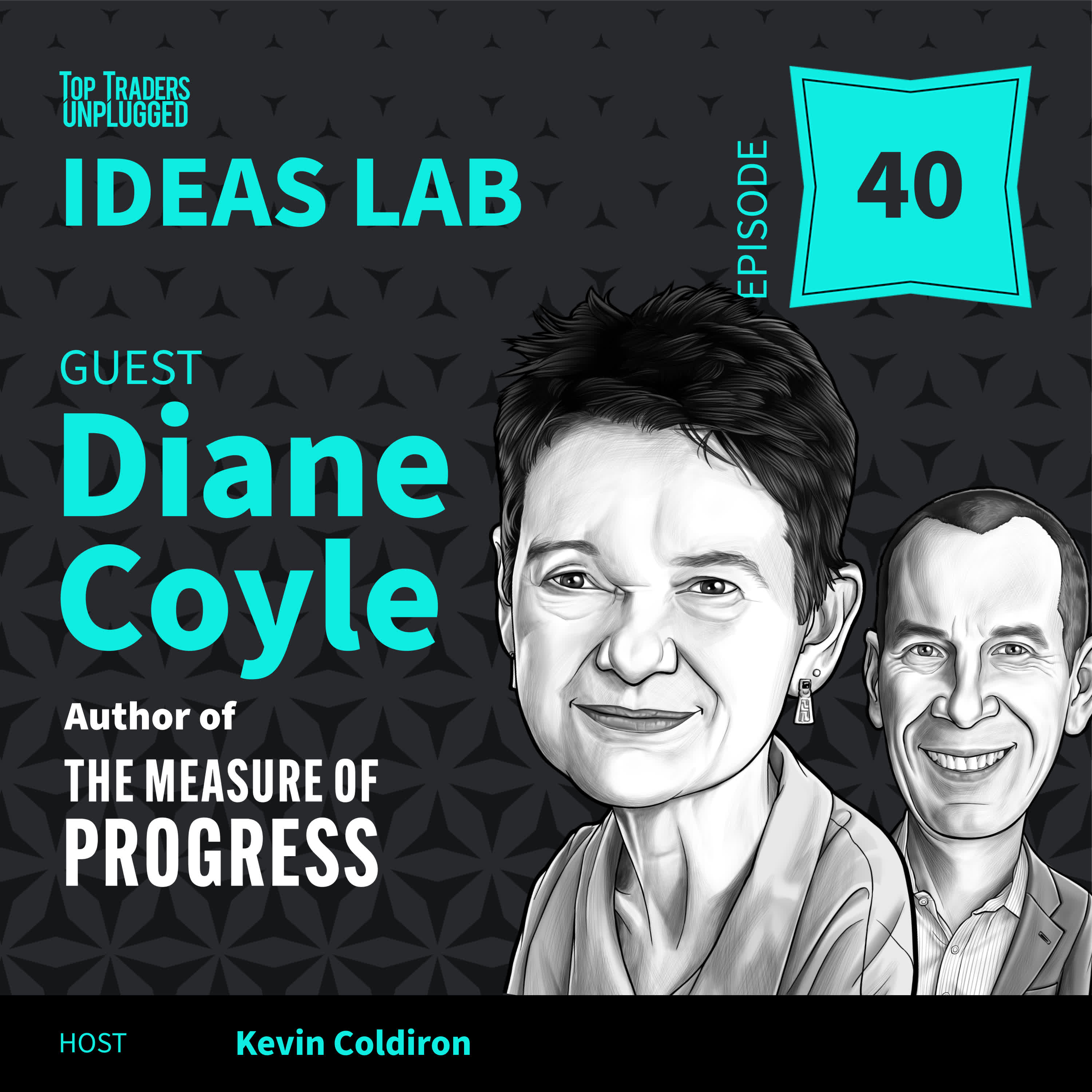 Top Traders UnpluggedIL40: Why the Economy Feels Broken... Even When It’s Growing ft. Diane CoyleWhat if our most trusted economic statistic is pointing us in the wrong direction? Diane Coyle joins Kevin Coldiron to explore why GDP - long treated as a proxy for progress - now obscures more than it reveals. As economies shift toward services, intangibles, and unpaid digital labor, much of today’s value creation falls outside the frame. Drawing on her new book, The Measure of Progress, Coyle makes the case for a new way of seeing - one that captures time, trust, and the real foundations of growth. The question isn’t how fast we’re moving. It’s whethe...2025-08-0656 min
Top Traders UnpluggedIL40: Why the Economy Feels Broken... Even When It’s Growing ft. Diane CoyleWhat if our most trusted economic statistic is pointing us in the wrong direction? Diane Coyle joins Kevin Coldiron to explore why GDP - long treated as a proxy for progress - now obscures more than it reveals. As economies shift toward services, intangibles, and unpaid digital labor, much of today’s value creation falls outside the frame. Drawing on her new book, The Measure of Progress, Coyle makes the case for a new way of seeing - one that captures time, trust, and the real foundations of growth. The question isn’t how fast we’re moving. It’s whethe...2025-08-0656 min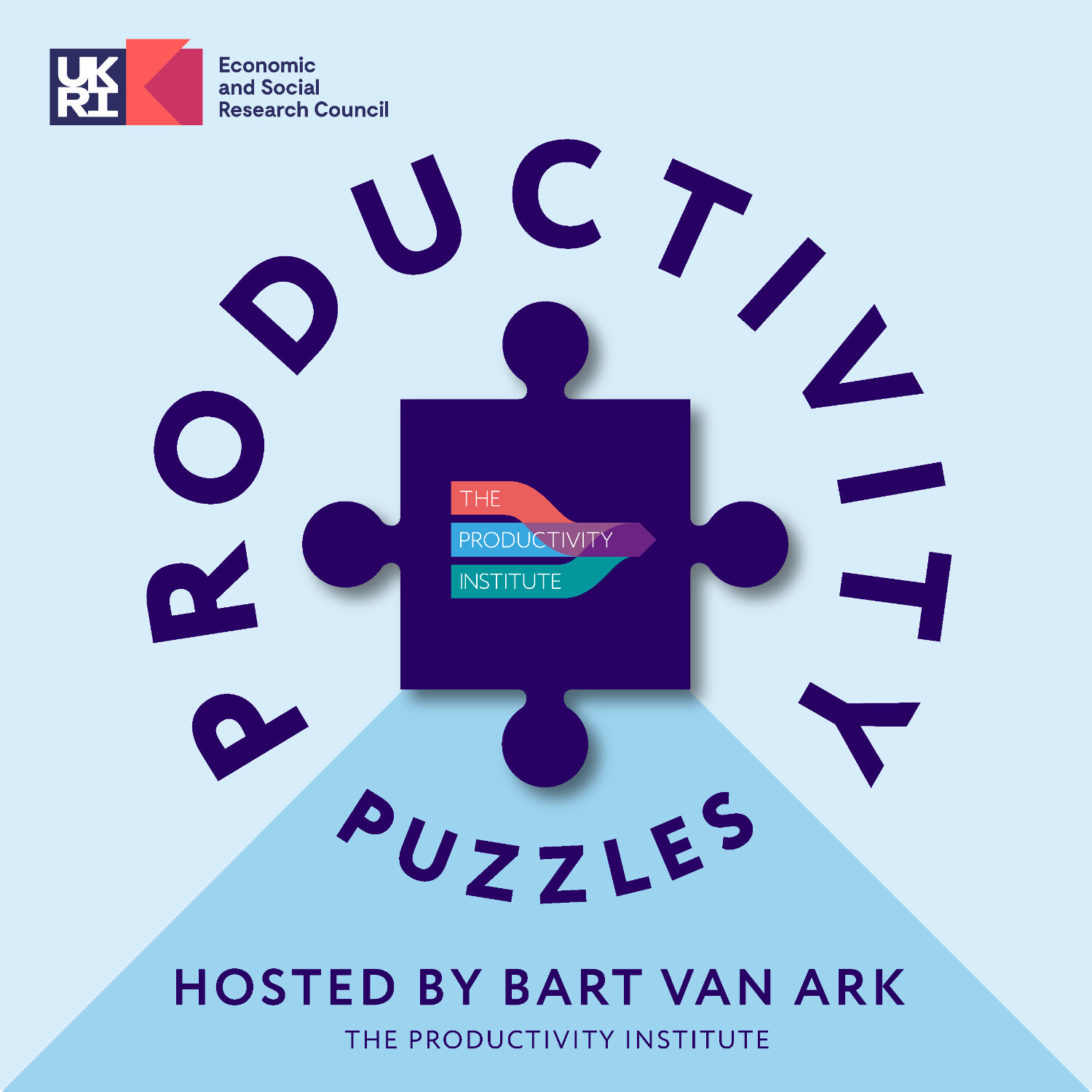 Productivity PuzzlesBooks Festival: Diane Coyle & Jan MischkeThis episode explores new insights into the productivity puzzle from two fresh pieces of work. First, Diane Coyle discusses her book The Measure of Progress, explaining why what we measure is profoundly important but increasingly difficult. Then, Jan Mischke from the McKinsey Global Institute shares a striking finding from their report The Power of One: a relatively small number of "standout firms" deliver a very big share of a country's productivity growth.
Host Professor Bart van Ark is joined by:
Diane Coyle, Bennett Professor of Public Policy and Co-Director of the Bennett Institute for Public Policy...2025-05-2957 min
Productivity PuzzlesBooks Festival: Diane Coyle & Jan MischkeThis episode explores new insights into the productivity puzzle from two fresh pieces of work. First, Diane Coyle discusses her book The Measure of Progress, explaining why what we measure is profoundly important but increasingly difficult. Then, Jan Mischke from the McKinsey Global Institute shares a striking finding from their report The Power of One: a relatively small number of "standout firms" deliver a very big share of a country's productivity growth.
Host Professor Bart van Ark is joined by:
Diane Coyle, Bennett Professor of Public Policy and Co-Director of the Bennett Institute for Public Policy...2025-05-2957 min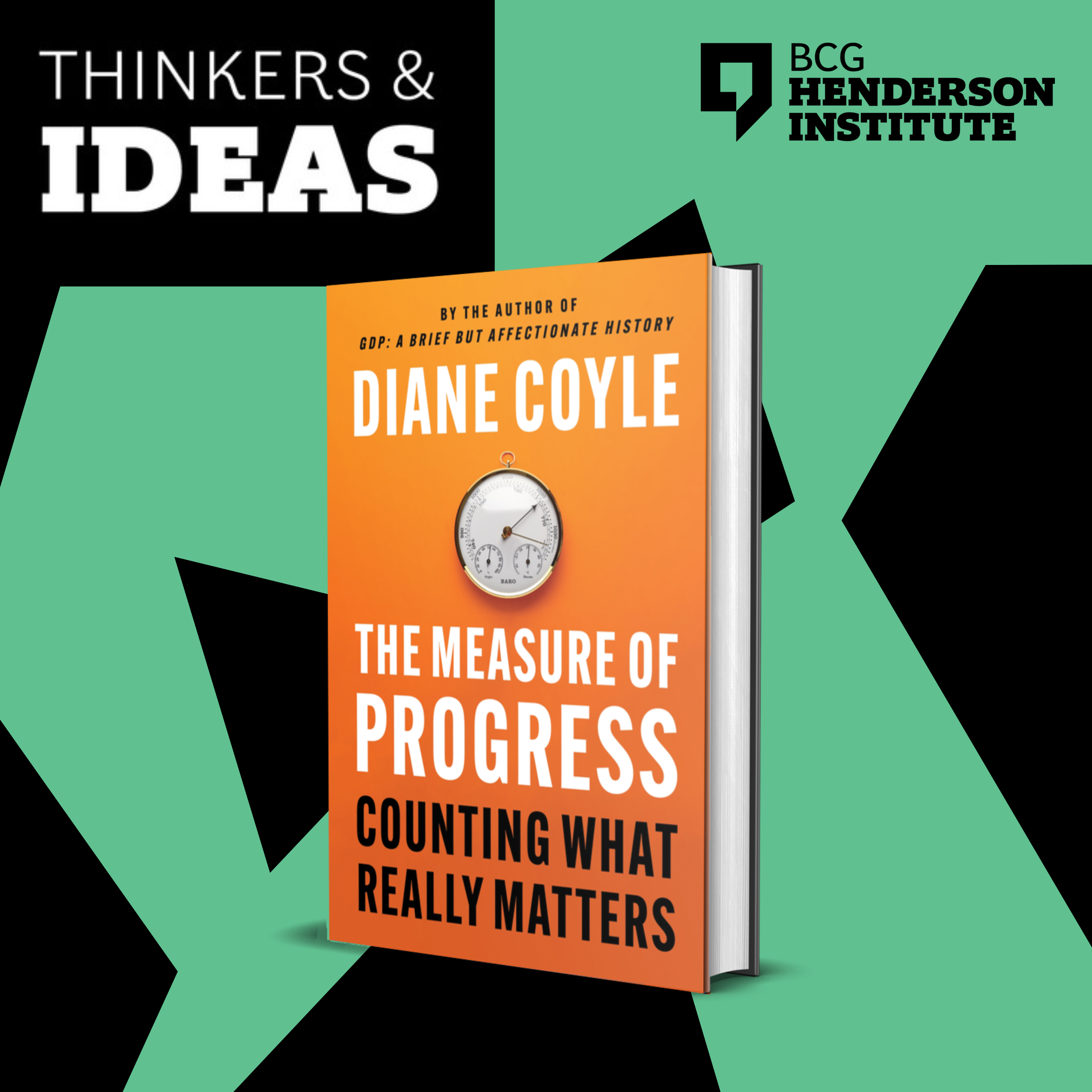 Thinkers & IdeasThe Measure of Progress with Diane CoyleIn The Measure of Progress: Counting What Really Matters, Dame Diane Coyle argues that traditional measures like GDP no longer capture economic realities.Coyle is the Bennett Professor of Public Policy at the University of Cambridge. She is also the director of the Productivity Institute, a fellow of the Office for National Statistics, and a member of the UK’s Competition Commission. Drawing on her deep expertise, she proposes an alternative framework for measuring productivity that enables better policymaking.In her conversation with Nikolaus Lang, global leader of the BCG Henderson Institute, she discusses the sh...2025-05-0622 min
Thinkers & IdeasThe Measure of Progress with Diane CoyleIn The Measure of Progress: Counting What Really Matters, Dame Diane Coyle argues that traditional measures like GDP no longer capture economic realities.Coyle is the Bennett Professor of Public Policy at the University of Cambridge. She is also the director of the Productivity Institute, a fellow of the Office for National Statistics, and a member of the UK’s Competition Commission. Drawing on her deep expertise, she proposes an alternative framework for measuring productivity that enables better policymaking.In her conversation with Nikolaus Lang, global leader of the BCG Henderson Institute, she discusses the sh...2025-05-0622 min The Michael Shermer ShowThe Trouble with Economic Data: Flawed Metrics, Flawed DecisionsThe ways that statisticians and governments measure the economy were developed in the 1940s, when the urgent economic problems were entirely different from those of today. Diane Coyle argues that the framework underpinning today’s economic statistics is so outdated that it functions as a distorting lens, or even a set of blinkers. When policymakers rely on such an antiquated conceptual tool, how can they measure, understand, and respond with any precision to what is happening in today’s digital economy? Coyle argues that to understand the current economy, we need different data collected in a different fram...2025-04-3054 min
The Michael Shermer ShowThe Trouble with Economic Data: Flawed Metrics, Flawed DecisionsThe ways that statisticians and governments measure the economy were developed in the 1940s, when the urgent economic problems were entirely different from those of today. Diane Coyle argues that the framework underpinning today’s economic statistics is so outdated that it functions as a distorting lens, or even a set of blinkers. When policymakers rely on such an antiquated conceptual tool, how can they measure, understand, and respond with any precision to what is happening in today’s digital economy? Coyle argues that to understand the current economy, we need different data collected in a different fram...2025-04-3054 min Best Life Best Death#190 Widows, Wisdom, and WTF Moments — Anita Coyle and Mel Shore, Founders of Widow We Do NowIn this episode, I sit down with two fabulous and funny podcast hosts, Anita Coyle and Mel Shore, founders of the Widow We Do Now? podcast. They share their experiences of widowhood, both the parts that are isolating and pieces that have lifted them up. How might you help a friend who is newly widowed after a long period as a caregiver? Or a coworker who loses a partner suddenly? What about if someone wasn’t legally married, but intended to spend their life with someone, who then dies? What the heck is the word for that? We all ne...2025-04-2333 min
Best Life Best Death#190 Widows, Wisdom, and WTF Moments — Anita Coyle and Mel Shore, Founders of Widow We Do NowIn this episode, I sit down with two fabulous and funny podcast hosts, Anita Coyle and Mel Shore, founders of the Widow We Do Now? podcast. They share their experiences of widowhood, both the parts that are isolating and pieces that have lifted them up. How might you help a friend who is newly widowed after a long period as a caregiver? Or a coworker who loses a partner suddenly? What about if someone wasn’t legally married, but intended to spend their life with someone, who then dies? What the heck is the word for that? We all ne...2025-04-2333 min Keen On AmericaEpisode 2488: Diane Coyle on Measuring the Good LifeHow to measure the good life? According to Cambridge University’s Professor of Public Policy, Diane Coyle, quantifying progress doesn’t involve traditional economic metrics. In her new book, Measure of Progress, Coyle discusses how economic metrics like GDP, designed 80 years ago, are increasingly inadequate for measuring today's complex economy. She argues we need new approaches that account for digital transformation, supply chains, and long-term sustainability. Coyle suggests developing human-centric balance sheet measures that reflect true progress beyond simple growth numbers. Five Key Takeaways * Economic metrics like GDP were deve...2025-04-0532 min
Keen On AmericaEpisode 2488: Diane Coyle on Measuring the Good LifeHow to measure the good life? According to Cambridge University’s Professor of Public Policy, Diane Coyle, quantifying progress doesn’t involve traditional economic metrics. In her new book, Measure of Progress, Coyle discusses how economic metrics like GDP, designed 80 years ago, are increasingly inadequate for measuring today's complex economy. She argues we need new approaches that account for digital transformation, supply chains, and long-term sustainability. Coyle suggests developing human-centric balance sheet measures that reflect true progress beyond simple growth numbers. Five Key Takeaways * Economic metrics like GDP were deve...2025-04-0532 min Discover The High-Impact Full Audiobook Experience!The Measure of Progress by Diane CoylePlease visithttps://thebookvoice.com/podcasts/2/audible/154079to listen full audiobooks.
Title: The Measure of Progress
Author: Diane Coyle
Narrator: Harrie Dobby
Format: mp3
Length: 10 hrs and 42 mins
Release date: 04-01-25
Ratings: Not rated yet
Genres: Economic Policy
Publisher's Summary:
The ways that statisticians and governments measure the economy were developed in the 1940s, when the urgent economic problems were entirely different from those of today. In The Measure of Progress, Diane Coyle argues that the framework underpinning today's economic statistics is so outdated that it functions as a distorting lens, or even a set of blinkers. When policymakers rely...2025-04-0110h 42
Discover The High-Impact Full Audiobook Experience!The Measure of Progress by Diane CoylePlease visithttps://thebookvoice.com/podcasts/2/audible/154079to listen full audiobooks.
Title: The Measure of Progress
Author: Diane Coyle
Narrator: Harrie Dobby
Format: mp3
Length: 10 hrs and 42 mins
Release date: 04-01-25
Ratings: Not rated yet
Genres: Economic Policy
Publisher's Summary:
The ways that statisticians and governments measure the economy were developed in the 1940s, when the urgent economic problems were entirely different from those of today. In The Measure of Progress, Diane Coyle argues that the framework underpinning today's economic statistics is so outdated that it functions as a distorting lens, or even a set of blinkers. When policymakers rely...2025-04-0110h 42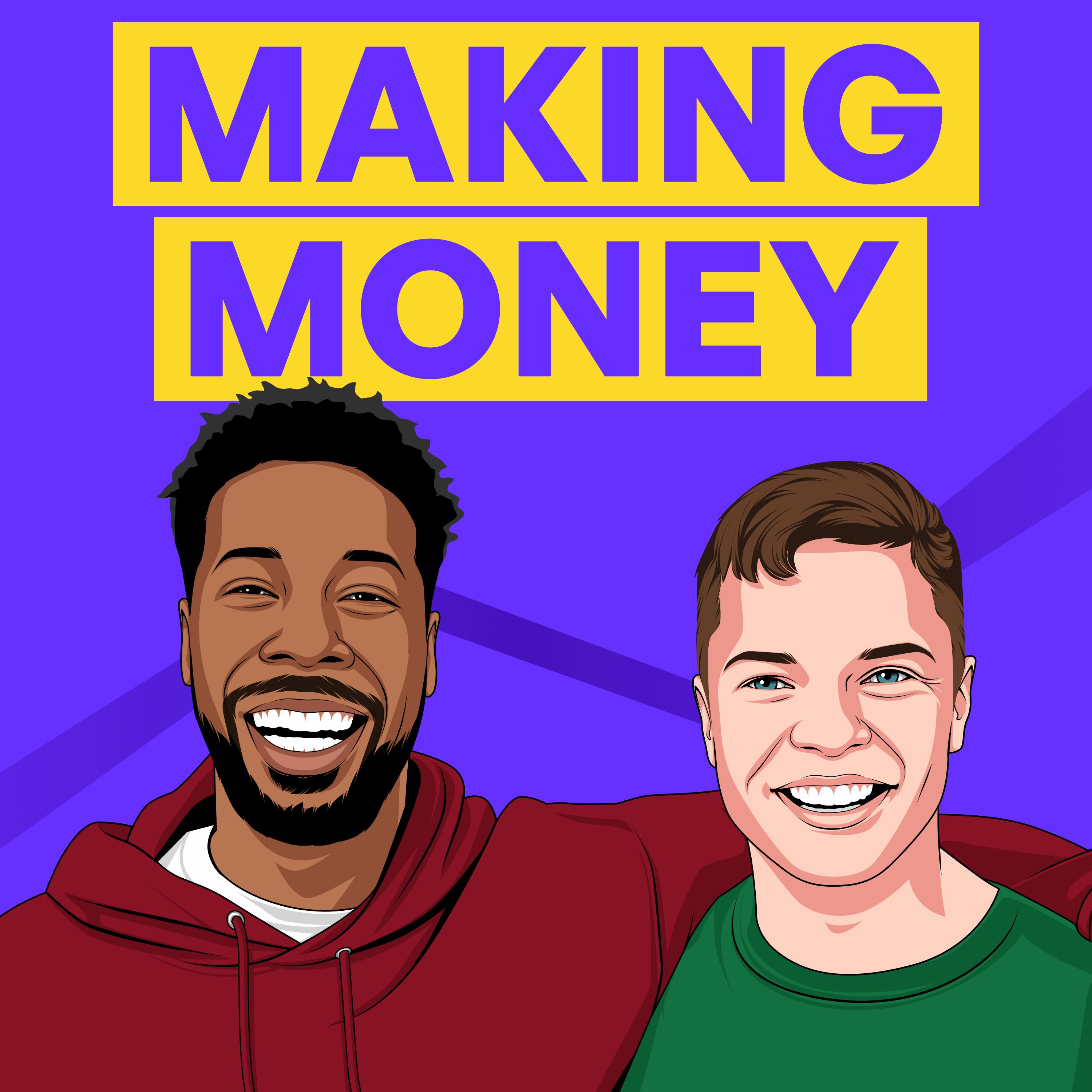 Making MoneyWill AI really deliver growth? Economist, Diane CoyleIs AI going to solve our productivity problem? Diane Coyle is an Economist and Professor at the University of Cambridge where she looks at the economic impact of the digital economy, including artificial intelligence. Her new book is called ‘The Measure of Progress: Counting What Really Matters’ (https://shorturl.at/PuHgF).
🤝 Get help from a financial adviser to navigate big decisions
https://makingmoney.email/financial-advisors-audio
🎉Sponsors
Odoo - 45 business apps in one: https://www.odoo.com/r/MM1
Vanta - Get your company secure and compliant: http...2025-03-1747 min
Making MoneyWill AI really deliver growth? Economist, Diane CoyleIs AI going to solve our productivity problem? Diane Coyle is an Economist and Professor at the University of Cambridge where she looks at the economic impact of the digital economy, including artificial intelligence. Her new book is called ‘The Measure of Progress: Counting What Really Matters’ (https://shorturl.at/PuHgF).
🤝 Get help from a financial adviser to navigate big decisions
https://makingmoney.email/financial-advisors-audio
🎉Sponsors
Odoo - 45 business apps in one: https://www.odoo.com/r/MM1
Vanta - Get your company secure and compliant: http...2025-03-1747 min Crossing ChannelsCan Europe ever catch up to the US in technology?In this episode, Richard Westcott talks to Diane Coyle, Jacques Crémer, and Paul Seabright about Europe’s position in competing with the US in technology. They explore the factors shaping Europe’s place in the global tech race—how data, policy, investment, competition and culture influence its potential to compete with the US.Our experts unpack the challenges and opportunities for Europe’s tech ecosystem. They consider whether Europe should aim to catch up with the US or focus on carving out its own path, questioning what success in innovation really looks like. Along the way...2025-03-0331 min
Crossing ChannelsCan Europe ever catch up to the US in technology?In this episode, Richard Westcott talks to Diane Coyle, Jacques Crémer, and Paul Seabright about Europe’s position in competing with the US in technology. They explore the factors shaping Europe’s place in the global tech race—how data, policy, investment, competition and culture influence its potential to compete with the US.Our experts unpack the challenges and opportunities for Europe’s tech ecosystem. They consider whether Europe should aim to catch up with the US or focus on carving out its own path, questioning what success in innovation really looks like. Along the way...2025-03-0331 min Productivity PuzzlesWrapping Up 2024: Is there a productive growth path forward?2024 has been quite a year. A new government, big plans, but a growth and productivity revival isn’t visible yet. These things take time. Is the UK still on track for a reset of policy to boost growth and productivity? Or is there something fundamentally wrong with how we're thinking about these subjects?
Host Professor Bart van Ark is joined by:
Diane Coyle, Bennett Professor of Public Policy, University of Cambridge & Director at The Productivity Institute.Richard Jones, Vice-President for Innovation and Regional Economic Development and Professor of Materials Physics and Innovation Po...2024-12-1950 min
Productivity PuzzlesWrapping Up 2024: Is there a productive growth path forward?2024 has been quite a year. A new government, big plans, but a growth and productivity revival isn’t visible yet. These things take time. Is the UK still on track for a reset of policy to boost growth and productivity? Or is there something fundamentally wrong with how we're thinking about these subjects?
Host Professor Bart van Ark is joined by:
Diane Coyle, Bennett Professor of Public Policy, University of Cambridge & Director at The Productivity Institute.Richard Jones, Vice-President for Innovation and Regional Economic Development and Professor of Materials Physics and Innovation Po...2024-12-1950 min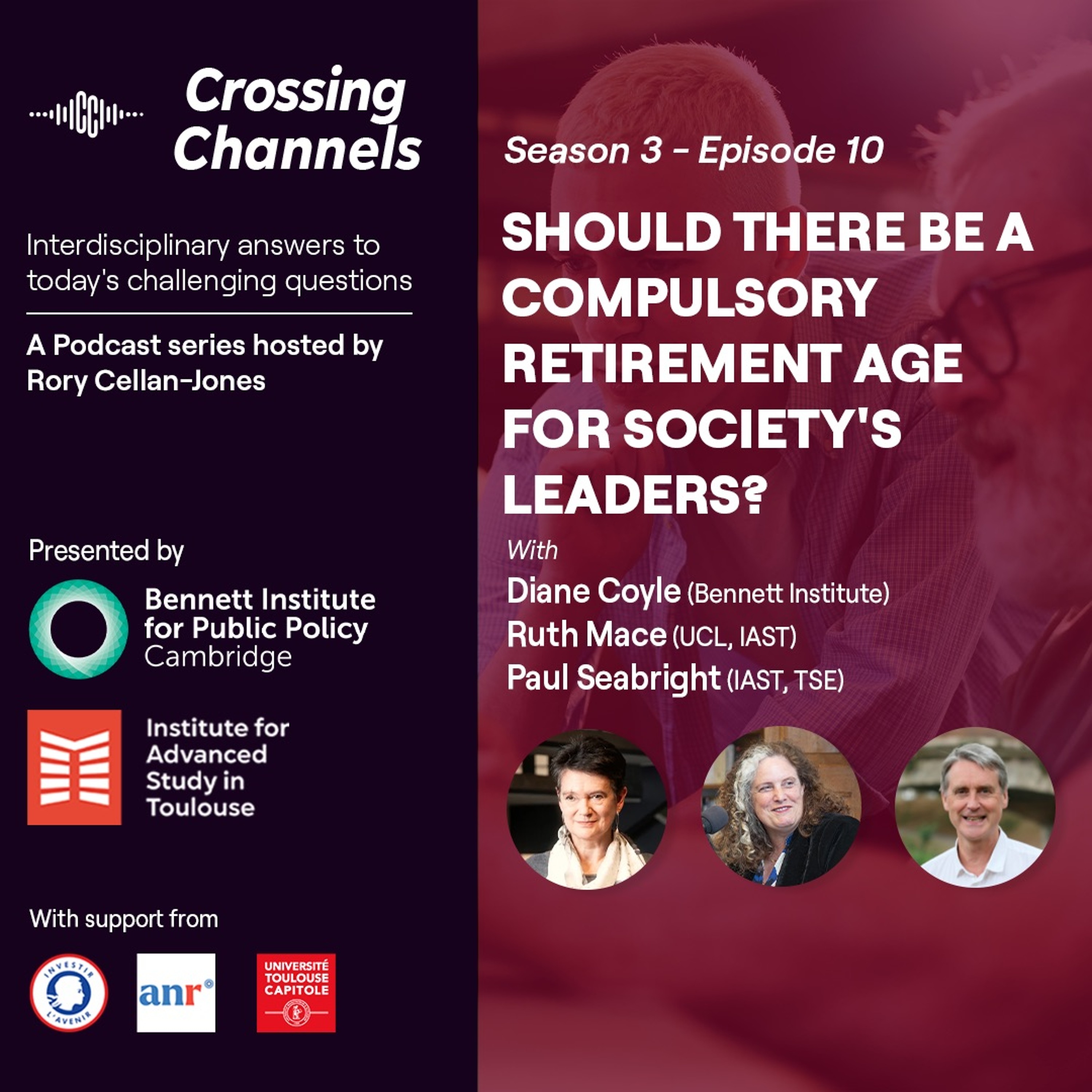 University of CambridgeShould there be a compulsory retirement age for society’s leaders?In this episode of Crossing Channels, Rory Cellan-Jones discusses with Diane Coyle, Ruth Mace, and Paul Seabright the impact of age on leadership, the consequences of having older leaders for society, and the case for implementing a compulsory retirement age.
Leading experts discuss the trade-off between experience, expertise, skill and judgment as society’s leaders age. They draw on evolutionary as well as current examples to evaluate the case for implementing a compulsory retirement age for leaders. Finally, they consider alternative mechanisms – such as reducing voting ages, term limits and cognitive testing – to improve democratic responsiveness.
This episode is hosted by Ror...2024-07-3039 min
University of CambridgeShould there be a compulsory retirement age for society’s leaders?In this episode of Crossing Channels, Rory Cellan-Jones discusses with Diane Coyle, Ruth Mace, and Paul Seabright the impact of age on leadership, the consequences of having older leaders for society, and the case for implementing a compulsory retirement age.
Leading experts discuss the trade-off between experience, expertise, skill and judgment as society’s leaders age. They draw on evolutionary as well as current examples to evaluate the case for implementing a compulsory retirement age for leaders. Finally, they consider alternative mechanisms – such as reducing voting ages, term limits and cognitive testing – to improve democratic responsiveness.
This episode is hosted by Ror...2024-07-3039 min Crossing ChannelsShould there be a compulsory retirement age for society's leaders?In this episode, Rory Cellan-Jones discusses with Diane Coyle, Ruth Mace, and Paul Seabright the impact of age on leadership, the consequences of having older leaders for society, and the case for implementing a compulsory retirement age.Our experts discuss the tradeoff between experience, expertise, skill and judgement as society’s leaders age. They draw on evolutionary and current examples to evaluate the case for implementing a compulsory retirement age for leaders. Finally, they consider alternative mechanisms - such as reducing voting ages, term limits and cognitive testing - to improve democratic responsiveness. This episode is hos...2024-07-0139 min
Crossing ChannelsShould there be a compulsory retirement age for society's leaders?In this episode, Rory Cellan-Jones discusses with Diane Coyle, Ruth Mace, and Paul Seabright the impact of age on leadership, the consequences of having older leaders for society, and the case for implementing a compulsory retirement age.Our experts discuss the tradeoff between experience, expertise, skill and judgement as society’s leaders age. They draw on evolutionary and current examples to evaluate the case for implementing a compulsory retirement age for leaders. Finally, they consider alternative mechanisms - such as reducing voting ages, term limits and cognitive testing - to improve democratic responsiveness. This episode is hos...2024-07-0139 min Society of Professional Economists - Econ ThoughtsInterview with Diane CoyleFilippo Gaddo, Managing Director at MAP and SPE member, held a discussion with Diane Coyle, Bennett Professor of Public Policy at the University of Cambridge, on the future of productivity, what are the key drivers and obstacles going forward and how we could find a better way to measure progress and flourishing.
During the interview, Diane expressed her concerns about the slowdown of productivity over the past couple of decades – particularly in the UK – and the low level of investment and lack of spending on infrastructure that could hamper a return to higher levels of productivity. Nonetheless, Dian...2024-04-1130 min
Society of Professional Economists - Econ ThoughtsInterview with Diane CoyleFilippo Gaddo, Managing Director at MAP and SPE member, held a discussion with Diane Coyle, Bennett Professor of Public Policy at the University of Cambridge, on the future of productivity, what are the key drivers and obstacles going forward and how we could find a better way to measure progress and flourishing.
During the interview, Diane expressed her concerns about the slowdown of productivity over the past couple of decades – particularly in the UK – and the low level of investment and lack of spending on infrastructure that could hamper a return to higher levels of productivity. Nonetheless, Dian...2024-04-1130 min The Health Foundation podcastOur health: is it the economy, stupid? – with Torsten Bell and Diane CoyleWhat's happened to our economy and what does it mean for our health?
Many developed economies have been growing more slowly since around 2008, but the UK economy has been struggling more than most. Wages haven't risen since 2008 leaving the average worker £14,000 worse off. Productivity growth – vital to rising living standards – has stalled. Regional inequalities are unusually large, and economic hardship is widespread with 2.8 million people reporting not working because of long-term sickness.
So what’s driving this economic stagnation, how is it connected to our health, and what can politicians do to address the challenges?
To...2024-03-2532 min
The Health Foundation podcastOur health: is it the economy, stupid? – with Torsten Bell and Diane CoyleWhat's happened to our economy and what does it mean for our health?
Many developed economies have been growing more slowly since around 2008, but the UK economy has been struggling more than most. Wages haven't risen since 2008 leaving the average worker £14,000 worse off. Productivity growth – vital to rising living standards – has stalled. Regional inequalities are unusually large, and economic hardship is widespread with 2.8 million people reporting not working because of long-term sickness.
So what’s driving this economic stagnation, how is it connected to our health, and what can politicians do to address the challenges?
To...2024-03-2532 min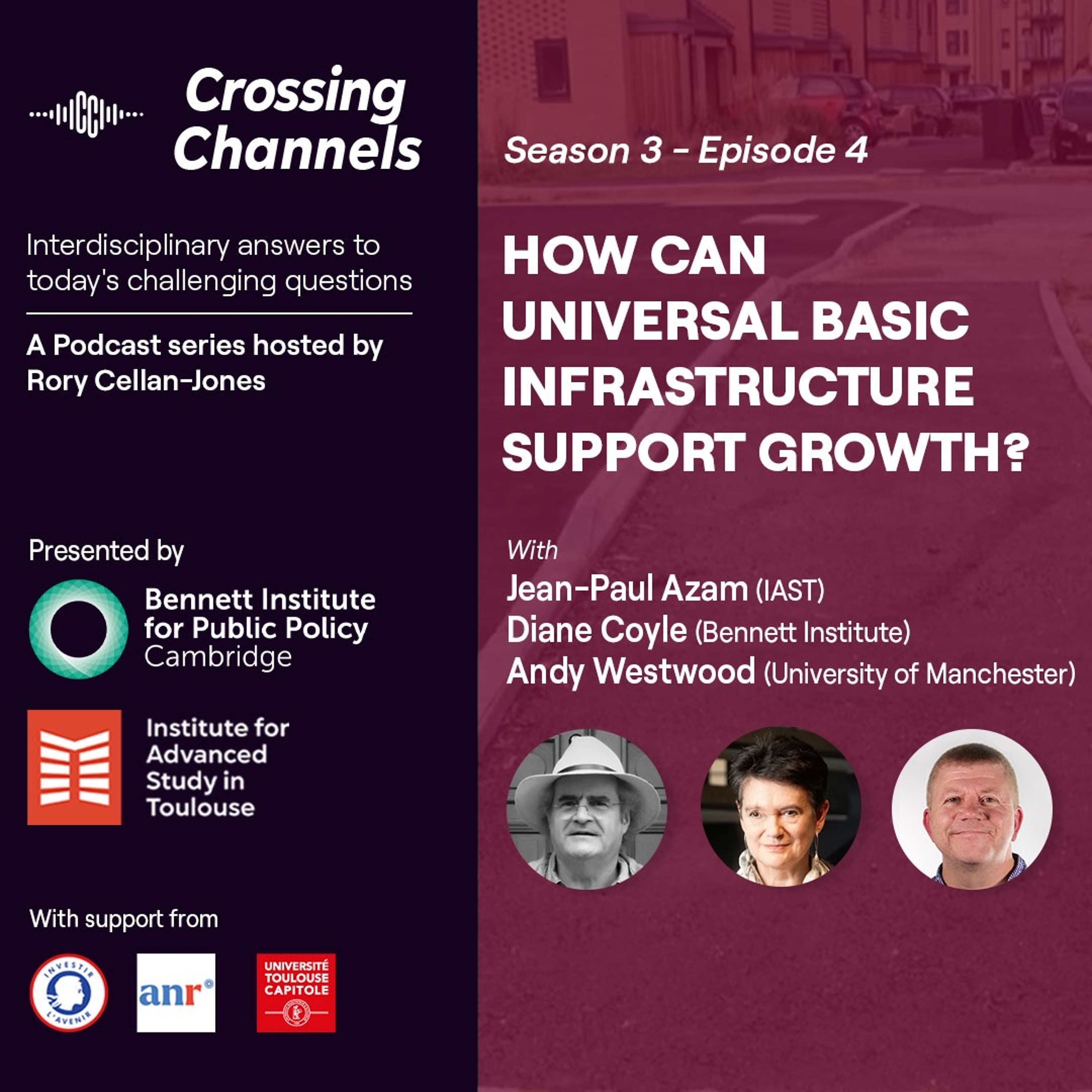 University of CambridgeHow can universal basic infrastructure support growth?Rory Cellan-Jones talks to Jean-Paul Azam, Diane Coyle and Andy Westwood about the potential of universal basic income to tackle regional inequalities, boost economic growth in ‘left behind’ and growing places, and rebuilding democracy.
This episode unpacks why current policies are failing to tackle regional inequalities and how a universal basic infrastructure might boost productivity across all places. Leading experts examine the value of infrastructure in different country contexts and how different levels of various departments and government could work together to deliver a universal basic infrastructure in all places.
Listen to this episode on your preferred podcast platform
Season 3 Epis...2024-01-0828 min
University of CambridgeHow can universal basic infrastructure support growth?Rory Cellan-Jones talks to Jean-Paul Azam, Diane Coyle and Andy Westwood about the potential of universal basic income to tackle regional inequalities, boost economic growth in ‘left behind’ and growing places, and rebuilding democracy.
This episode unpacks why current policies are failing to tackle regional inequalities and how a universal basic infrastructure might boost productivity across all places. Leading experts examine the value of infrastructure in different country contexts and how different levels of various departments and government could work together to deliver a universal basic infrastructure in all places.
Listen to this episode on your preferred podcast platform
Season 3 Epis...2024-01-0828 min Crossing ChannelsHow can universal basic infrastructure support growth?Rory Cellan-Jones talks to Jean-Paul Azam, Diane Coyle and Andy Westwood about the potential of universal basic income to tackle regional inequalities, boost economic growth in ‘left behind’ and growing places, and rebuild democracy. This episode unpacks why current policies are failing to tackle regional inequalities and how a universal basic infrastructure might boost productivity across all places. Leading experts examine the value of infrastructure in different country contexts and how different levels of various departments and government could work together to deliver a universal basic infrastructure in all places. Listen...2024-01-0128 min
Crossing ChannelsHow can universal basic infrastructure support growth?Rory Cellan-Jones talks to Jean-Paul Azam, Diane Coyle and Andy Westwood about the potential of universal basic income to tackle regional inequalities, boost economic growth in ‘left behind’ and growing places, and rebuild democracy. This episode unpacks why current policies are failing to tackle regional inequalities and how a universal basic infrastructure might boost productivity across all places. Leading experts examine the value of infrastructure in different country contexts and how different levels of various departments and government could work together to deliver a universal basic infrastructure in all places. Listen...2024-01-0128 min Productivity PuzzlesWrapping up Productivity Puzzles 2023: brief interviews with productivity expertsThe final episode of Productivity Puzzles Season 2 examines whether 2023 has brought us closer to putting the productivity puzzle together. What are some of the most important insights from this season of the podcast? And what can we learn from The Productivity Institute's Productivity Agenda? The conversation covers the challenges in institutional decision-making, the diffusion of technology and skills, and diversity in firm performance, investment and the adoption of good practices, as well as possible pro-productivity policies for the future.
Host Professor Bart van Ark is joined by:
D...2023-12-2043 min
Productivity PuzzlesWrapping up Productivity Puzzles 2023: brief interviews with productivity expertsThe final episode of Productivity Puzzles Season 2 examines whether 2023 has brought us closer to putting the productivity puzzle together. What are some of the most important insights from this season of the podcast? And what can we learn from The Productivity Institute's Productivity Agenda? The conversation covers the challenges in institutional decision-making, the diffusion of technology and skills, and diversity in firm performance, investment and the adoption of good practices, as well as possible pro-productivity policies for the future.
Host Professor Bart van Ark is joined by:
D...2023-12-2043 min The Governance PodcastThe data that is and that data the isn’t: the pitfalls of using big data: In conversation with Diane CoyleOn this week’s episode of the Governance Podcast, Mark Pennington, the Director at the Study of Governance and Society here at King College London, interviews Professor Diane Coyle. This episode is titled "The data that is and that data the isn't: the pitfalls of using big data", and discusses the various uses and implications of big data in society, and the many pitfalls that may arise.
The Conversation
‘Big Data’ fuels AI models like ChatGPT and the machine learning systems that are generating much debate about their promise – and peril – for decision-making. The impact of the technology...2023-04-1950 min
The Governance PodcastThe data that is and that data the isn’t: the pitfalls of using big data: In conversation with Diane CoyleOn this week’s episode of the Governance Podcast, Mark Pennington, the Director at the Study of Governance and Society here at King College London, interviews Professor Diane Coyle. This episode is titled "The data that is and that data the isn't: the pitfalls of using big data", and discusses the various uses and implications of big data in society, and the many pitfalls that may arise.
The Conversation
‘Big Data’ fuels AI models like ChatGPT and the machine learning systems that are generating much debate about their promise – and peril – for decision-making. The impact of the technology...2023-04-1950 min Productivity PuzzlesScience and Innovation Policy for Hard TimesThere is a new UK government department for science, innovation, and technology. Will the new standalone entity turn Britain into the science superpower that it hopes to become? Will the new department lift productivity growth during the hard times that the country is currently facing? This episode of Productivity Puzzles investigates these issues and more.
Host Professor Bart van Ark is joined by:
Richard Jones, Vice-President for Innovation and Regional Economic Development and Professor of Materials Physics and Innovation Policy, University of Manchester. Diane Coyle, Bennett Professor of Public Policy, University of C...2023-02-1654 min
Productivity PuzzlesScience and Innovation Policy for Hard TimesThere is a new UK government department for science, innovation, and technology. Will the new standalone entity turn Britain into the science superpower that it hopes to become? Will the new department lift productivity growth during the hard times that the country is currently facing? This episode of Productivity Puzzles investigates these issues and more.
Host Professor Bart van Ark is joined by:
Richard Jones, Vice-President for Innovation and Regional Economic Development and Professor of Materials Physics and Innovation Policy, University of Manchester. Diane Coyle, Bennett Professor of Public Policy, University of C...2023-02-1654 min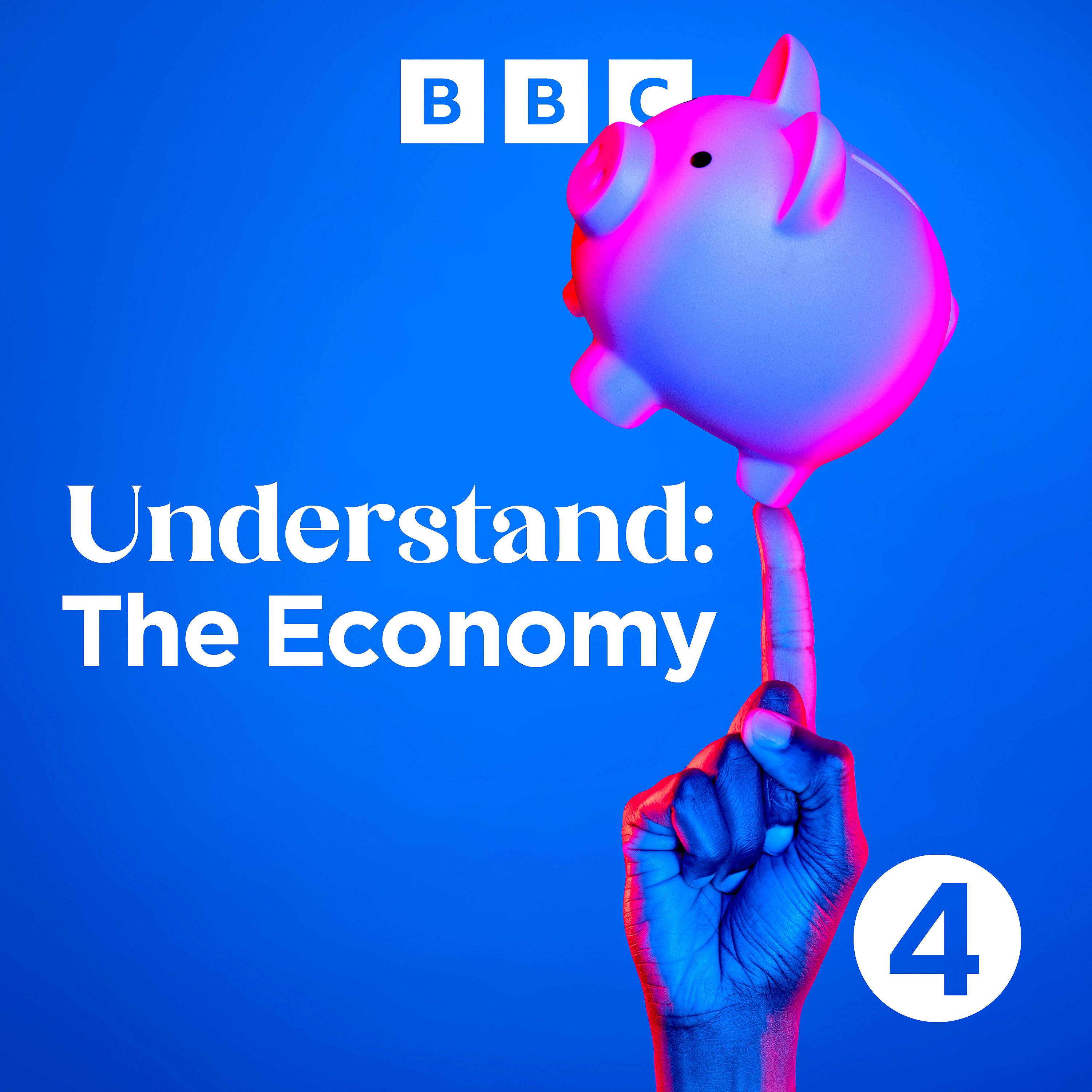 UnderstandThe Economy: 14. Bankruptcy and InsolvencyThe cost of living crisis is putting more pressure on more people - but what happens when that pressure becomes too much, and is bankruptcy always a bad thing? Professor Diane Coyle explains the processes and wider economic impact of bankruptcy, and Dr Victoria Bateman takes us back to the very beginning of the idea in the time of Henry VIII. Everything you need to know about the economy and what it means for you. This podcast will cut through the jargon to bring you clarity and ensure you finally understand all those complicated terms and phrases...2023-01-3014 min
UnderstandThe Economy: 14. Bankruptcy and InsolvencyThe cost of living crisis is putting more pressure on more people - but what happens when that pressure becomes too much, and is bankruptcy always a bad thing? Professor Diane Coyle explains the processes and wider economic impact of bankruptcy, and Dr Victoria Bateman takes us back to the very beginning of the idea in the time of Henry VIII. Everything you need to know about the economy and what it means for you. This podcast will cut through the jargon to bring you clarity and ensure you finally understand all those complicated terms and phrases...2023-01-3014 min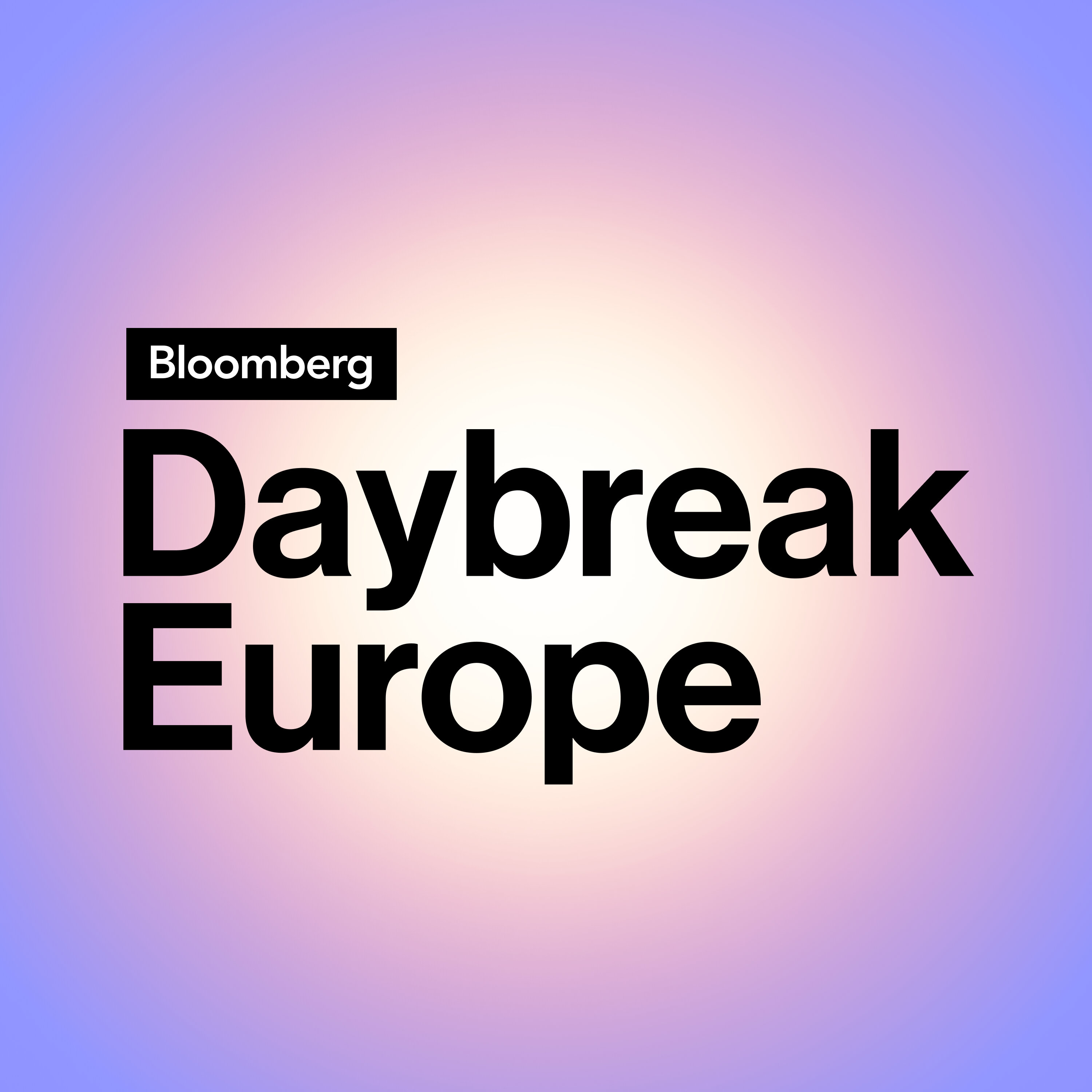 Bloomberg Daybreak: Europe EditionCoyle: Consistency Needed in UK Economic Policy (Audio)Former Treasury economist and Bennett Professor of Public Policy at the University of Cambridge, Diane Coyle, says the government needs to be more consistent in its supply-side economic measures. She told Bloomberg's Stephen Carroll and Caroline Hepker that ministers can't keep putting off much-needed investments. Coyle added that criticism of institutions like the Office for Budget Responsibility by politicians was "really unhelpful" in the context of the cost of living crisis.See omnystudio.com/listener for privacy information.2022-11-0409 min
Bloomberg Daybreak: Europe EditionCoyle: Consistency Needed in UK Economic Policy (Audio)Former Treasury economist and Bennett Professor of Public Policy at the University of Cambridge, Diane Coyle, says the government needs to be more consistent in its supply-side economic measures. She told Bloomberg's Stephen Carroll and Caroline Hepker that ministers can't keep putting off much-needed investments. Coyle added that criticism of institutions like the Office for Budget Responsibility by politicians was "really unhelpful" in the context of the cost of living crisis.See omnystudio.com/listener for privacy information.2022-11-0409 min unSILOed with Greg LaBlanc204. What Economics Is and What It Should Be feat. Diane CoyleHow can you be both interdisciplinary and be a contributing specialist in your discipline in this day andage? It's a core theme of this podcast, as well as our guests' research. Diane Coyle is the Bennett Professor of Public Policy at the University of Cambridge. Diane co-directs the Bennett Institute where she heads research under the themes of progress and productivity. Her latest book is “Cogs and Monsters: What Economics Is, and What It Should Be” on how economics needs to change to keep pace with the twenty-first century and the digital economy.Diane is also...2022-10-2850 min
unSILOed with Greg LaBlanc204. What Economics Is and What It Should Be feat. Diane CoyleHow can you be both interdisciplinary and be a contributing specialist in your discipline in this day andage? It's a core theme of this podcast, as well as our guests' research. Diane Coyle is the Bennett Professor of Public Policy at the University of Cambridge. Diane co-directs the Bennett Institute where she heads research under the themes of progress and productivity. Her latest book is “Cogs and Monsters: What Economics Is, and What It Should Be” on how economics needs to change to keep pace with the twenty-first century and the digital economy.Diane is also...2022-10-2850 min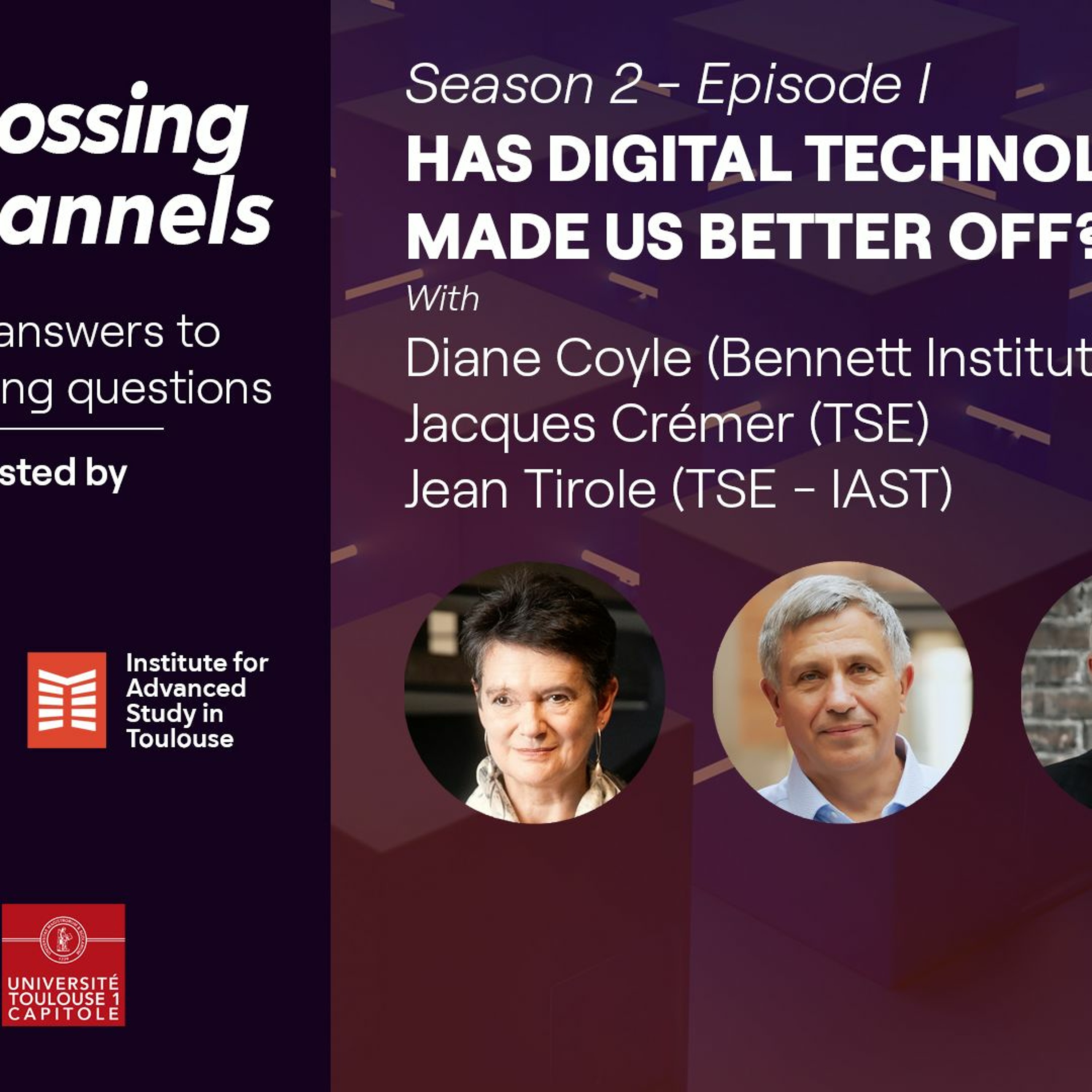 University of CambridgeHas digital technology made us better off?Rory Cellan-Jones talks to leading economists Diane Coyle, Jacques Crémer and Jean Tirole, about why productivity growth has slowed in spite of immense technological progress and what policy can do about it.
This episode unravels the impact of digitalisation on economic growth and its implications for policy. Leading economists discuss the productivity puzzle, why regulating Big Tech is so difficult, the threats of mass surveillance, and what policymakers can do to address these challenges.
This episode is hosted by Rory Cellan-Jones (former technology correspondent for the BBC), and features guest experts Professor Diane Coyle (Bennett Institute for Public Policy), P...2022-10-0530 min
University of CambridgeHas digital technology made us better off?Rory Cellan-Jones talks to leading economists Diane Coyle, Jacques Crémer and Jean Tirole, about why productivity growth has slowed in spite of immense technological progress and what policy can do about it.
This episode unravels the impact of digitalisation on economic growth and its implications for policy. Leading economists discuss the productivity puzzle, why regulating Big Tech is so difficult, the threats of mass surveillance, and what policymakers can do to address these challenges.
This episode is hosted by Rory Cellan-Jones (former technology correspondent for the BBC), and features guest experts Professor Diane Coyle (Bennett Institute for Public Policy), P...2022-10-0530 min Crossing ChannelsHas digital technology made us better off?Rory Cellan-Jones talks to leading economists Diane Coyle, Jacques Crémer and Jean Tirole, about why productivity growth has slowed in spite of immense technological progress and what policy can do about it.This episode unravels the impact of digitalisation on economic growth and its implications for policy. Leading economists discuss the productivity puzzle, why regulating Big Tech is so difficult, the threats of mass surveillance, and what policymakers can do to address these challenges. This episode is hosted by Rory Cellan-Jones (former technology correspondent for the BBC), and features guest experts Professor Di...2022-10-0230 min
Crossing ChannelsHas digital technology made us better off?Rory Cellan-Jones talks to leading economists Diane Coyle, Jacques Crémer and Jean Tirole, about why productivity growth has slowed in spite of immense technological progress and what policy can do about it.This episode unravels the impact of digitalisation on economic growth and its implications for policy. Leading economists discuss the productivity puzzle, why regulating Big Tech is so difficult, the threats of mass surveillance, and what policymakers can do to address these challenges. This episode is hosted by Rory Cellan-Jones (former technology correspondent for the BBC), and features guest experts Professor Di...2022-10-0230 min Productivity PuzzlesThe Productivity Policy Agenda: Short-Term Priorities and Long-Term CommitmentsShould the next Prime Minister embrace productivity as a cornerstone of the policy agenda for the new UK government in September? Can it help to get us through the economic winter ahead of us, and onto a path of sustained recovery? What policies are most critical, what should be continued, strengthened or perhaps stopped?
The final episode of Season 1 of Productivity Puzzles looks at the policy agenda for the new government, with discussion on the key elements that will help productivity to recover. In the short-term, what role does productivity have in dealing with...2022-09-011h 00
Productivity PuzzlesThe Productivity Policy Agenda: Short-Term Priorities and Long-Term CommitmentsShould the next Prime Minister embrace productivity as a cornerstone of the policy agenda for the new UK government in September? Can it help to get us through the economic winter ahead of us, and onto a path of sustained recovery? What policies are most critical, what should be continued, strengthened or perhaps stopped?
The final episode of Season 1 of Productivity Puzzles looks at the policy agenda for the new government, with discussion on the key elements that will help productivity to recover. In the short-term, what role does productivity have in dealing with...2022-09-011h 00 Bloomberg Daybreak: Europe EditionCoyle: Bleak Outlook for UK Economy (Audio)After second quarter GDP figures showed the UK economy contracting by less than had been expected, economist and Bennett Professor of Public Policy at Cambridge University Diane Coyle says the outlook is bleak. She told Bloomberg's Stephen Carroll and Alex Webb that the impact of rising energy bills will be 'severe' on households, and that discretionary spending will be the key metric to watch for signs of consumers being squeezed.See omnystudio.com/listener for privacy information.2022-08-1204 min
Bloomberg Daybreak: Europe EditionCoyle: Bleak Outlook for UK Economy (Audio)After second quarter GDP figures showed the UK economy contracting by less than had been expected, economist and Bennett Professor of Public Policy at Cambridge University Diane Coyle says the outlook is bleak. She told Bloomberg's Stephen Carroll and Alex Webb that the impact of rising energy bills will be 'severe' on households, and that discretionary spending will be the key metric to watch for signs of consumers being squeezed.See omnystudio.com/listener for privacy information.2022-08-1204 min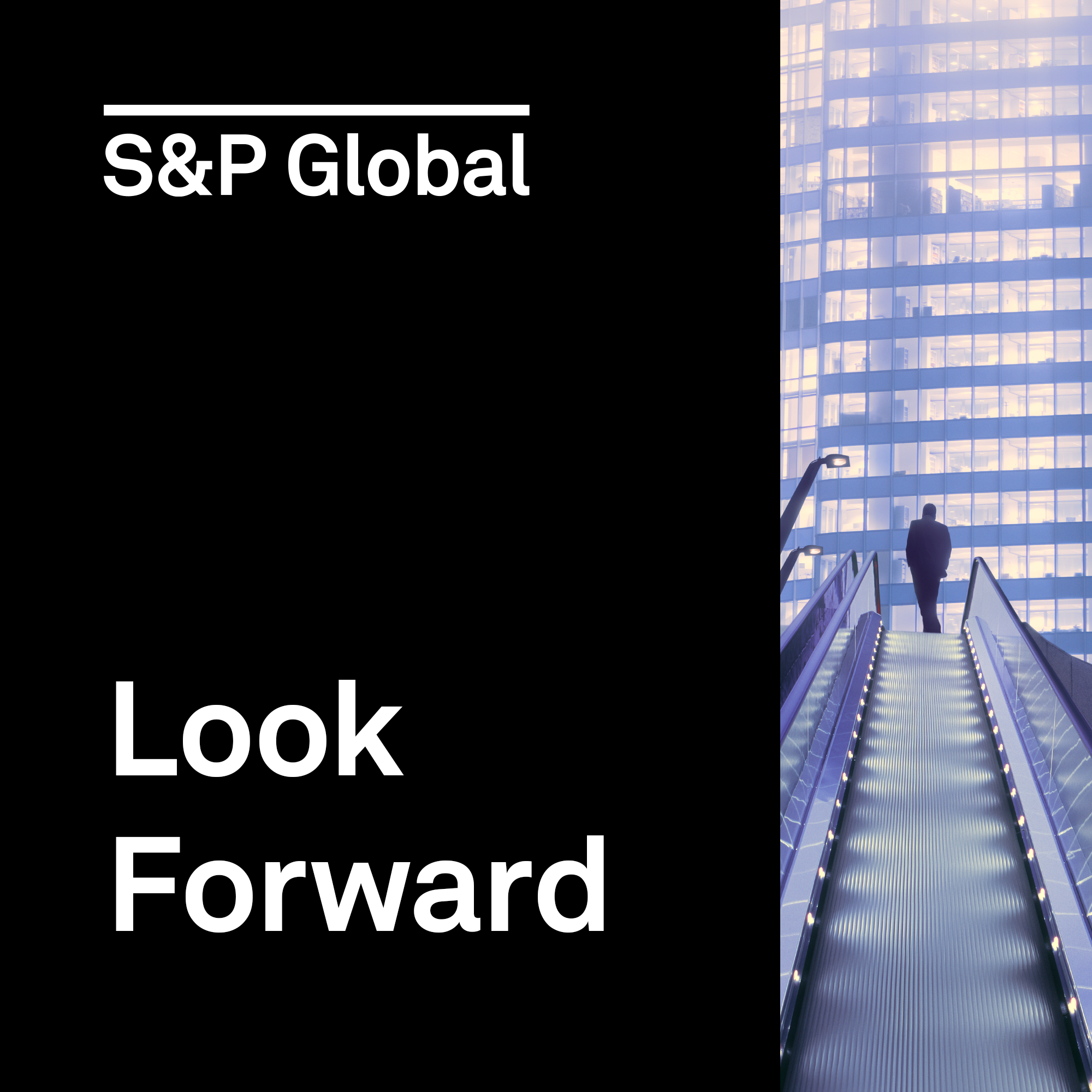 Look ForwardCogs & Monsters — An Interview with Diane CoyleDiane Coyle of Cambridge University joins the Essential Podcast to discuss the critique she offers of the economics profession, as a professional economist. We cover misperceptions of economics in popular culture, false objectivity, reflexivity, and the challenge of AI.2022-07-1524 min
Look ForwardCogs & Monsters — An Interview with Diane CoyleDiane Coyle of Cambridge University joins the Essential Podcast to discuss the critique she offers of the economics profession, as a professional economist. We cover misperceptions of economics in popular culture, false objectivity, reflexivity, and the challenge of AI.2022-07-1524 min Productivity PuzzlesProductivity and well-beingHow can productivity benefit not just business and the economy, but also ourselves? What does it take for a society to grow productivity and raise well-being? Can digital technology make us happier, as well as more productive?
In this episode, we look at which investments are needed to create more well-being and what role social factors, such as trust, play in raising productivity and well-being. The discussion is varied, with conversations about how we measure well-being effectively and what further data is needed to make informed choices, as well as a debate on whether digital technology has...2022-07-0650 min
Productivity PuzzlesProductivity and well-beingHow can productivity benefit not just business and the economy, but also ourselves? What does it take for a society to grow productivity and raise well-being? Can digital technology make us happier, as well as more productive?
In this episode, we look at which investments are needed to create more well-being and what role social factors, such as trust, play in raising productivity and well-being. The discussion is varied, with conversations about how we measure well-being effectively and what further data is needed to make informed choices, as well as a debate on whether digital technology has...2022-07-0650 min EconTalkDiane Coyle on Cogs, Monsters, and Better EconomicsMainstream economics, says author Diane Coyle, keeps treating people like cogs: self-interested, rational agents. But in the digital economy, we're less sophisticated consumer and more monster under the influece of social media. Listen as the economist and former UK Treasury advisor tells EconTalk host Russ Roberts how, for economics to remain relevant, it needs both more diverse methodologies and more engagement with the broader issues of the day.
2022-05-231h 02
EconTalkDiane Coyle on Cogs, Monsters, and Better EconomicsMainstream economics, says author Diane Coyle, keeps treating people like cogs: self-interested, rational agents. But in the digital economy, we're less sophisticated consumer and more monster under the influece of social media. Listen as the economist and former UK Treasury advisor tells EconTalk host Russ Roberts how, for economics to remain relevant, it needs both more diverse methodologies and more engagement with the broader issues of the day.
2022-05-231h 02 COMPLEXITYEric Beinhocker & Diane Coyle on Rethinking Economics for A Sustainable & Prosperous World (EPE 02)In the digital era, data is practically the air we breathe. So why does everybody treat it like a product to be hoarded and sold at profit? How would our world change if Big Tech operated on assumptions and incentives more aligned with the needs of a healthy society? Are more data — or are bigger models — really better? As human beings scamper around like prehistoric mammals under the proverbial feet of the new enormous digital monopolies that have emerged due to the Web’s economies of scale, how might we tip the scales back to a world governed wisely by human...2022-05-0750 min
COMPLEXITYEric Beinhocker & Diane Coyle on Rethinking Economics for A Sustainable & Prosperous World (EPE 02)In the digital era, data is practically the air we breathe. So why does everybody treat it like a product to be hoarded and sold at profit? How would our world change if Big Tech operated on assumptions and incentives more aligned with the needs of a healthy society? Are more data — or are bigger models — really better? As human beings scamper around like prehistoric mammals under the proverbial feet of the new enormous digital monopolies that have emerged due to the Web’s economies of scale, how might we tip the scales back to a world governed wisely by human...2022-05-0750 min RadicalxChange ReplayedValue in the Data Economy | Diane Coyle, Sushant Kumar, and Matt PrewittData and the Data Economy are increasingly important issues affecting all of society. Hear from a panel of experts on responsible technology and public policy discussing mental models of how value accrues in the Data Economy, how to form protective legislation and infrastructure, and dealing with extreme concentrations of power and wealth plaguing the data economy. This was originally aired on RxC TV as part of the 2021 RadicalxChange unConference Online.SpeakersSushant Kumar (@sushants) As Director on the Responsible Technology team, based in India, Sushant is focused on Omidyar Network’s work on a ne...2022-05-0541 min
RadicalxChange ReplayedValue in the Data Economy | Diane Coyle, Sushant Kumar, and Matt PrewittData and the Data Economy are increasingly important issues affecting all of society. Hear from a panel of experts on responsible technology and public policy discussing mental models of how value accrues in the Data Economy, how to form protective legislation and infrastructure, and dealing with extreme concentrations of power and wealth plaguing the data economy. This was originally aired on RxC TV as part of the 2021 RadicalxChange unConference Online.SpeakersSushant Kumar (@sushants) As Director on the Responsible Technology team, based in India, Sushant is focused on Omidyar Network’s work on a ne...2022-05-0541 min Productivity PuzzlesRestarting the Future: How Intangibles Can Fuel ProductivityWhy has economic growth slowed down? Have we already exhausted the benefits from the digital revolution? Are the trusted institutions of the 20th century now failing in the investments most needed for future growth in productivity?
This episode takes a deep dive into the book Restarting the Future: How to Fix the Intangible Economy, which provides a new explanation for why growth has slowed and why we need a reset of institutions and policies. The topics covered include R&D, software, design, training, reputation & branding and business processes.
Intangible...2022-04-2754 min
Productivity PuzzlesRestarting the Future: How Intangibles Can Fuel ProductivityWhy has economic growth slowed down? Have we already exhausted the benefits from the digital revolution? Are the trusted institutions of the 20th century now failing in the investments most needed for future growth in productivity?
This episode takes a deep dive into the book Restarting the Future: How to Fix the Intangible Economy, which provides a new explanation for why growth has slowed and why we need a reset of institutions and policies. The topics covered include R&D, software, design, training, reputation & branding and business processes.
Intangible...2022-04-2754 min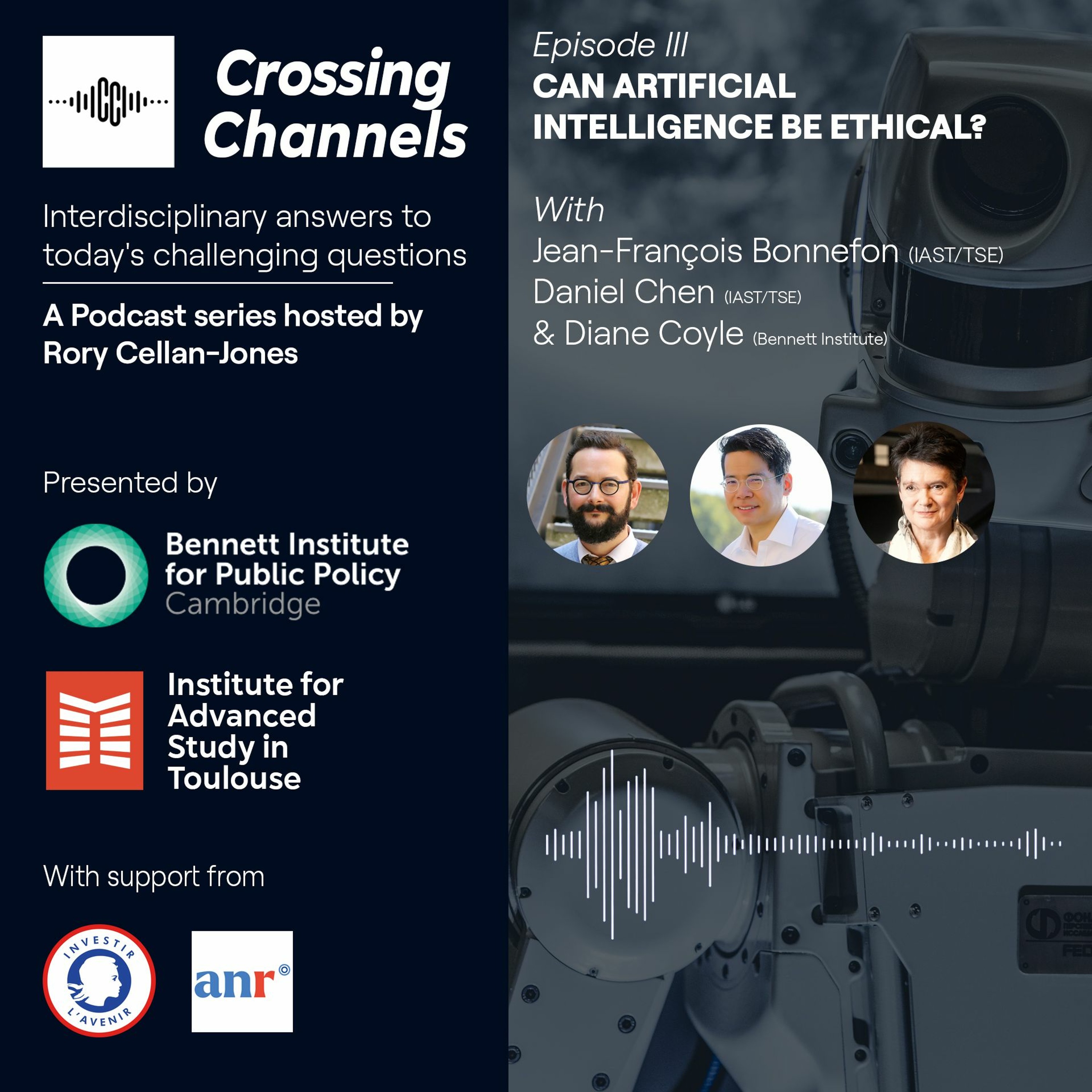 University of CambridgeCan artificial intelligence be ethical?Hope versus fear in artificial intelligence
In this third episode of Crossing Channels, experts from the Bennett Institute for Public Policy, Cambridge, and the Institute for Advanced Study in Toulouse (IAST), discuss the ethics of artificial intelligence (AI), including why we need to care about it, who is responsible for it, and whether there’s a double standard for AI and humans.
Host Rory Cellan-Jones talks to Dr Jean-Francois Bonnefon and Professor Daniel Chen from IAST, and Professor Diane Coyle from the Bennett Institute.
Listen on Spotify and Apple Podcasts
Episode 3 transcript
For more information about the podcast and the wo...2022-03-1129 min
University of CambridgeCan artificial intelligence be ethical?Hope versus fear in artificial intelligence
In this third episode of Crossing Channels, experts from the Bennett Institute for Public Policy, Cambridge, and the Institute for Advanced Study in Toulouse (IAST), discuss the ethics of artificial intelligence (AI), including why we need to care about it, who is responsible for it, and whether there’s a double standard for AI and humans.
Host Rory Cellan-Jones talks to Dr Jean-Francois Bonnefon and Professor Daniel Chen from IAST, and Professor Diane Coyle from the Bennett Institute.
Listen on Spotify and Apple Podcasts
Episode 3 transcript
For more information about the podcast and the wo...2022-03-1129 min New Books in EconomicsDiane Coyle, "Cogs and Monsters: What Economics Is, and What It Should Be" (Princeton UP, 2021)In Cogs and Monsters: What Economics Is, and What It Should Be (Princeton UP, 2021), Diane Coyle explores the enormous problems—but also opportunities—facing economics today if it is to respond effectively to these dizzying changes and help policymakers solve the world’s crises, from pandemic recovery and inequality to slow growth and the climate emergency. Mainstream economics, Coyle says, still assumes people are “cogs”—self-interested, calculating, independent agents interacting in defined contexts. But the digital economy is much more characterized by “monsters”—untethered, snowballing, and socially influenced unknowns. Coyle argues that economic policy is fundamentally normative, as any policy decision will...2022-02-0834 min
New Books in EconomicsDiane Coyle, "Cogs and Monsters: What Economics Is, and What It Should Be" (Princeton UP, 2021)In Cogs and Monsters: What Economics Is, and What It Should Be (Princeton UP, 2021), Diane Coyle explores the enormous problems—but also opportunities—facing economics today if it is to respond effectively to these dizzying changes and help policymakers solve the world’s crises, from pandemic recovery and inequality to slow growth and the climate emergency. Mainstream economics, Coyle says, still assumes people are “cogs”—self-interested, calculating, independent agents interacting in defined contexts. But the digital economy is much more characterized by “monsters”—untethered, snowballing, and socially influenced unknowns. Coyle argues that economic policy is fundamentally normative, as any policy decision will...2022-02-0834 min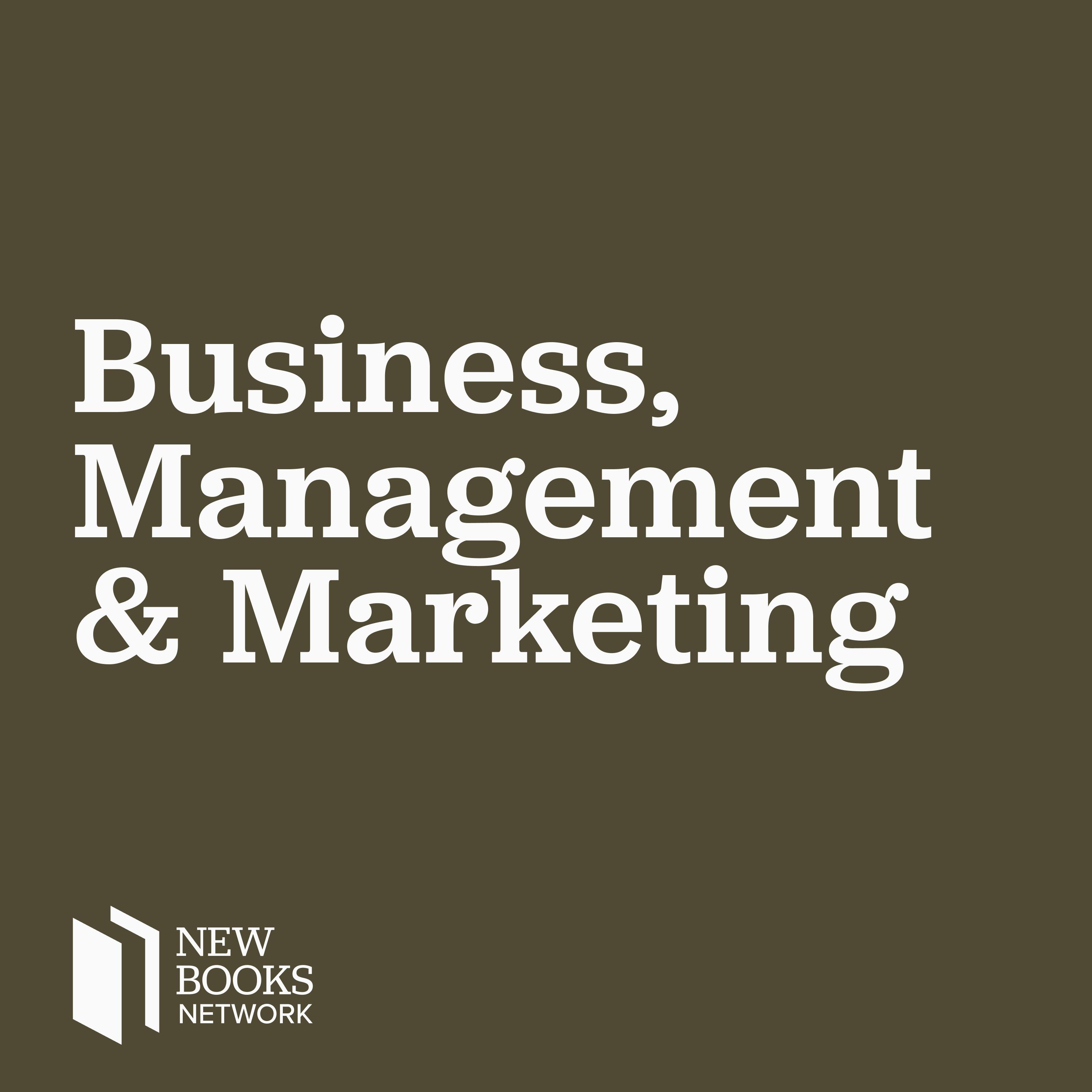 New Books in Business, Management, and MarketingDiane Coyle, "Cogs and Monsters: What Economics Is, and What It Should Be" (Princeton UP, 2021)In Cogs and Monsters: What Economics Is, and What It Should Be (Princeton UP, 2021), Diane Coyle explores the enormous problems—but also opportunities—facing economics today if it is to respond effectively to these dizzying changes and help policymakers solve the world’s crises, from pandemic recovery and inequality to slow growth and the climate emergency. Mainstream economics, Coyle says, still assumes people are “cogs”—self-interested, calculating, independent agents interacting in defined contexts. But the digital economy is much more characterized by “monsters”—untethered, snowballing, and socially influenced unknowns. Coyle argues that economic policy is fundamentally normative, as any policy decision will...2022-02-0834 min
New Books in Business, Management, and MarketingDiane Coyle, "Cogs and Monsters: What Economics Is, and What It Should Be" (Princeton UP, 2021)In Cogs and Monsters: What Economics Is, and What It Should Be (Princeton UP, 2021), Diane Coyle explores the enormous problems—but also opportunities—facing economics today if it is to respond effectively to these dizzying changes and help policymakers solve the world’s crises, from pandemic recovery and inequality to slow growth and the climate emergency. Mainstream economics, Coyle says, still assumes people are “cogs”—self-interested, calculating, independent agents interacting in defined contexts. But the digital economy is much more characterized by “monsters”—untethered, snowballing, and socially influenced unknowns. Coyle argues that economic policy is fundamentally normative, as any policy decision will...2022-02-0834 min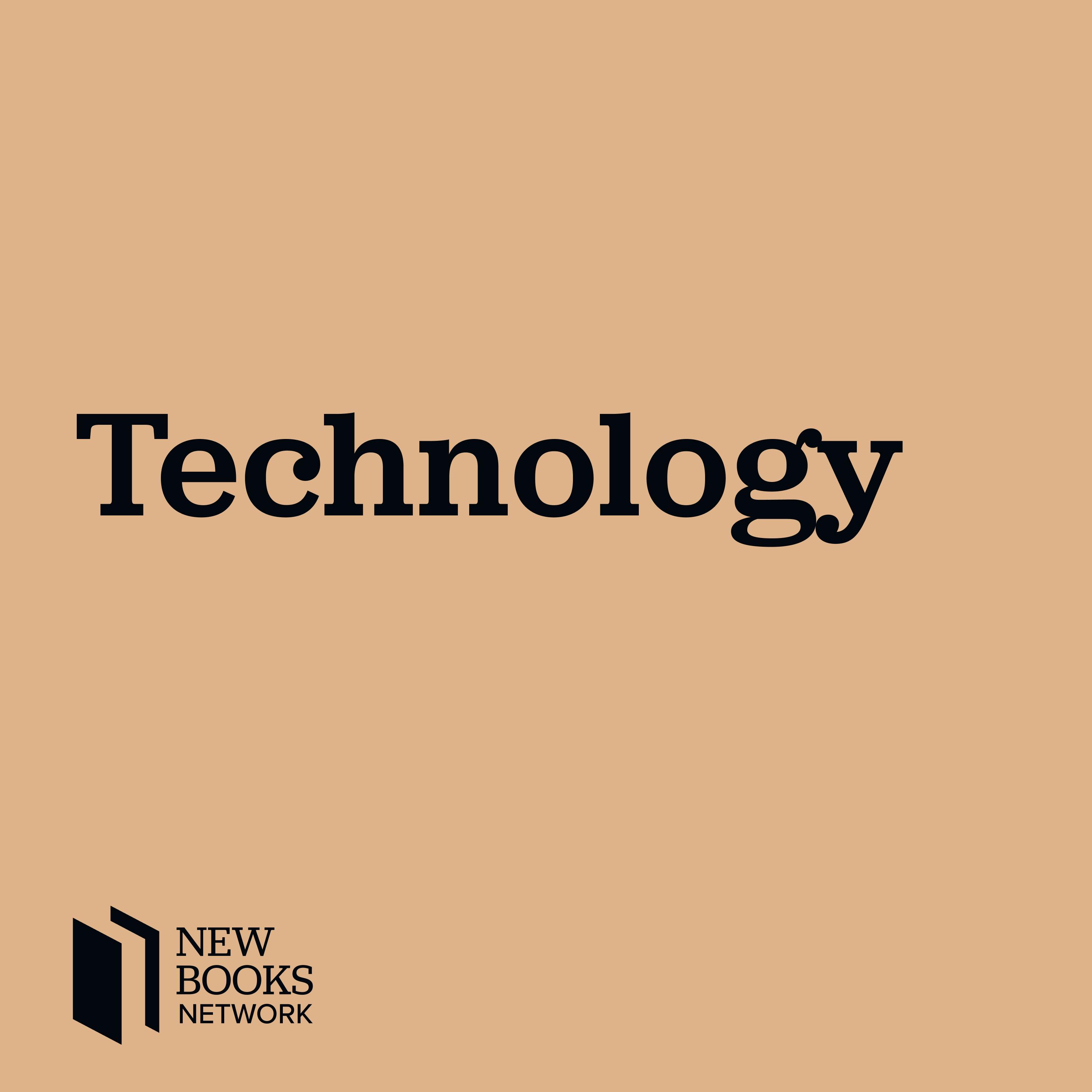 New Books in TechnologyDiane Coyle, "Cogs and Monsters: What Economics Is, and What It Should Be" (Princeton UP, 2021)In Cogs and Monsters: What Economics Is, and What It Should Be (Princeton UP, 2021), Diane Coyle explores the enormous problems—but also opportunities—facing economics today if it is to respond effectively to these dizzying changes and help policymakers solve the world’s crises, from pandemic recovery and inequality to slow growth and the climate emergency. Mainstream economics, Coyle says, still assumes people are “cogs”—self-interested, calculating, independent agents interacting in defined contexts. But the digital economy is much more characterized by “monsters”—untethered, snowballing, and socially influenced unknowns. Coyle argues that economic policy is fundamentally normative, as any policy decision will...2022-02-0834 min
New Books in TechnologyDiane Coyle, "Cogs and Monsters: What Economics Is, and What It Should Be" (Princeton UP, 2021)In Cogs and Monsters: What Economics Is, and What It Should Be (Princeton UP, 2021), Diane Coyle explores the enormous problems—but also opportunities—facing economics today if it is to respond effectively to these dizzying changes and help policymakers solve the world’s crises, from pandemic recovery and inequality to slow growth and the climate emergency. Mainstream economics, Coyle says, still assumes people are “cogs”—self-interested, calculating, independent agents interacting in defined contexts. But the digital economy is much more characterized by “monsters”—untethered, snowballing, and socially influenced unknowns. Coyle argues that economic policy is fundamentally normative, as any policy decision will...2022-02-0834 min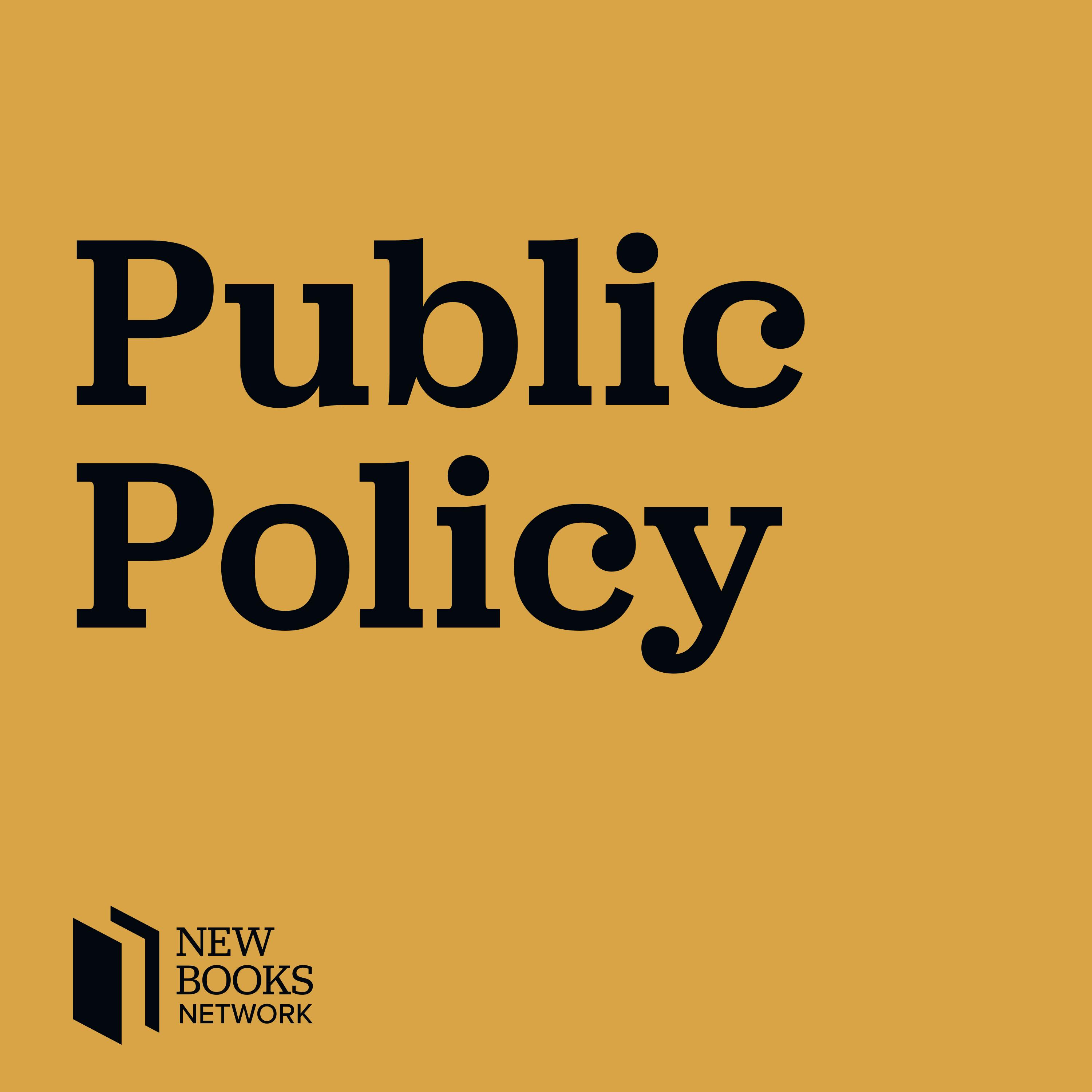 New Books in Public PolicyDiane Coyle, "Cogs and Monsters: What Economics Is, and What It Should Be" (Princeton UP, 2021)In Cogs and Monsters: What Economics Is, and What It Should Be (Princeton UP, 2021), Diane Coyle explores the enormous problems—but also opportunities—facing economics today if it is to respond effectively to these dizzying changes and help policymakers solve the world’s crises, from pandemic recovery and inequality to slow growth and the climate emergency. Mainstream economics, Coyle says, still assumes people are “cogs”—self-interested, calculating, independent agents interacting in defined contexts. But the digital economy is much more characterized by “monsters”—untethered, snowballing, and socially influenced unknowns. Coyle argues that economic policy is fundamentally normative, as any policy decision will imply p...2022-02-0834 min
New Books in Public PolicyDiane Coyle, "Cogs and Monsters: What Economics Is, and What It Should Be" (Princeton UP, 2021)In Cogs and Monsters: What Economics Is, and What It Should Be (Princeton UP, 2021), Diane Coyle explores the enormous problems—but also opportunities—facing economics today if it is to respond effectively to these dizzying changes and help policymakers solve the world’s crises, from pandemic recovery and inequality to slow growth and the climate emergency. Mainstream economics, Coyle says, still assumes people are “cogs”—self-interested, calculating, independent agents interacting in defined contexts. But the digital economy is much more characterized by “monsters”—untethered, snowballing, and socially influenced unknowns. Coyle argues that economic policy is fundamentally normative, as any policy decision will imply p...2022-02-0834 min Productivity PuzzlesLevelling Up and Productivity: The Role of Industrial Policy, Institutions and Fiscal MechanismsHow do we level up regions in a sustained manner - raising productivity and living standards, and reducing inequalities? Why do institutions matter and what should change to make it work?
The government introduced its Levelling Up agenda to the UK as part of its 2019 election manifesto and a long-promised White Paper on the subject is expected soon. There has been no shortage of suggestions in recent months on what to do to advance economic and social progress in UK-wide regions and cities, and how to reduce inequalities between places and groups in the population.
In...2022-01-1254 min
Productivity PuzzlesLevelling Up and Productivity: The Role of Industrial Policy, Institutions and Fiscal MechanismsHow do we level up regions in a sustained manner - raising productivity and living standards, and reducing inequalities? Why do institutions matter and what should change to make it work?
The government introduced its Levelling Up agenda to the UK as part of its 2019 election manifesto and a long-promised White Paper on the subject is expected soon. There has been no shortage of suggestions in recent months on what to do to advance economic and social progress in UK-wide regions and cities, and how to reduce inequalities between places and groups in the population.
In...2022-01-1254 min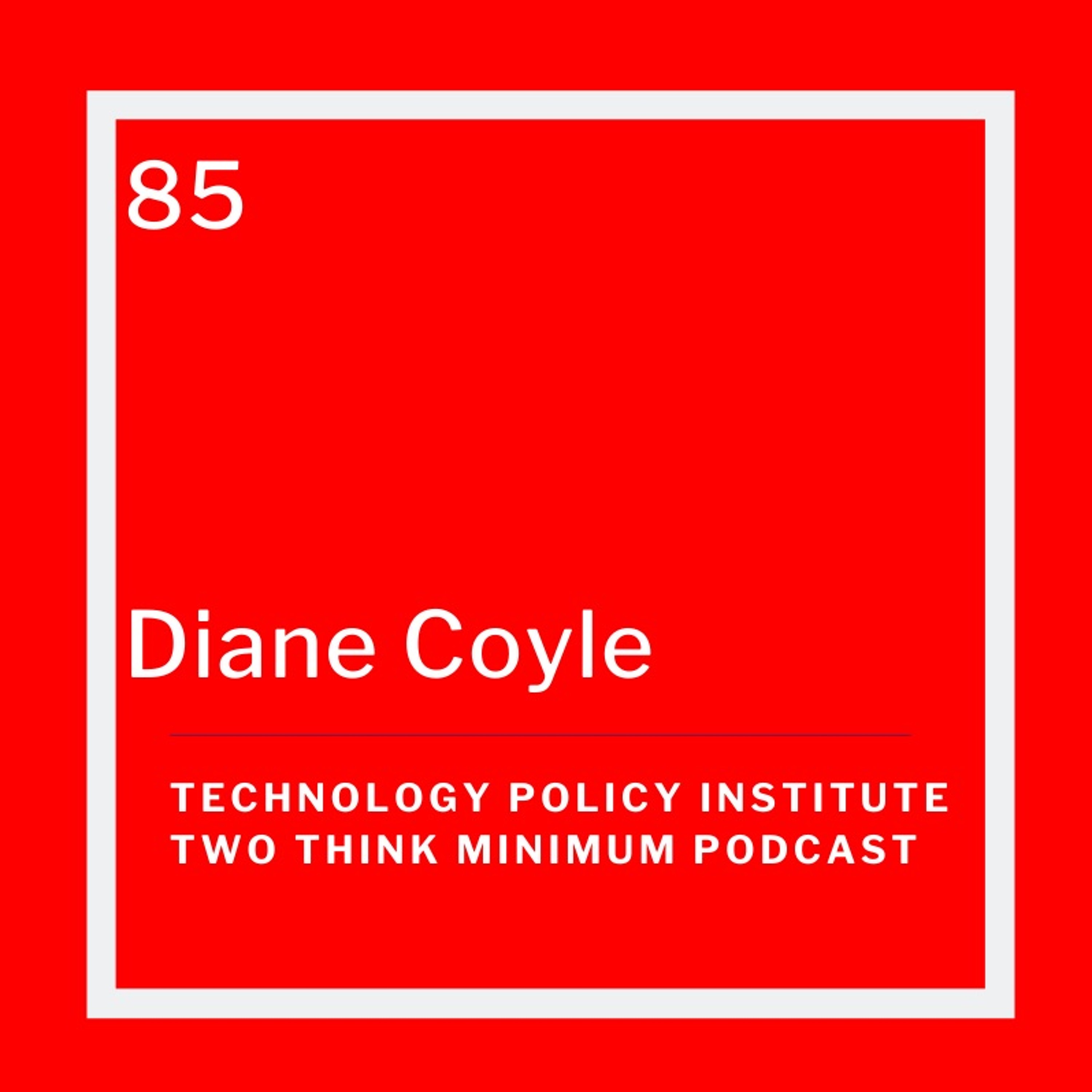 Two Think MinimumDiane Coyle on How Economics Can Evolve with a Changing WorldProfessor Diane Coyle is the Bennett Professor of Public Policy at the University of Cambridge. Professor Coyle co-directs the Bennett Institute where she heads research under the themes of progress and productivity. She is also a Director of the Productivity Institute, a Fellow of the Office for National Statistics, an expert adviser to the National Infrastructure Commission, and Senior Independent Member of the ESRC Council. She has served in public service roles including as Vice Chair of the BBC Trust, member of the Competition Commission, of the Migration Advisory Committee and of the Natural Capital Committee. Professor Coyle was awarded...2022-01-0442 min
Two Think MinimumDiane Coyle on How Economics Can Evolve with a Changing WorldProfessor Diane Coyle is the Bennett Professor of Public Policy at the University of Cambridge. Professor Coyle co-directs the Bennett Institute where she heads research under the themes of progress and productivity. She is also a Director of the Productivity Institute, a Fellow of the Office for National Statistics, an expert adviser to the National Infrastructure Commission, and Senior Independent Member of the ESRC Council. She has served in public service roles including as Vice Chair of the BBC Trust, member of the Competition Commission, of the Migration Advisory Committee and of the Natural Capital Committee. Professor Coyle was awarded...2022-01-0442 min Crossing ChannelsCan artificial intelligence be ethical?Hope versus fear in artificial intelligenceIn this third episode of Crossing Channels, experts from the Bennett Institute for Public Policy, Cambridge, and the Institute for Advanced Study in Toulouse (IAST), discuss the ethics of artificial intelligence (AI), including why we need to care about it, who is responsible for it, and whether there’s a double standard for AI and humans.Host Rory Cellan-Jones talks to Dr Jean-Francois Bonnefon and Professor Daniel Chen from IAST, and Professor Diane Coyle from the Bennett Institute.Listen on Spotify and Apple Podcasts 2022-01-0229 min
Crossing ChannelsCan artificial intelligence be ethical?Hope versus fear in artificial intelligenceIn this third episode of Crossing Channels, experts from the Bennett Institute for Public Policy, Cambridge, and the Institute for Advanced Study in Toulouse (IAST), discuss the ethics of artificial intelligence (AI), including why we need to care about it, who is responsible for it, and whether there’s a double standard for AI and humans.Host Rory Cellan-Jones talks to Dr Jean-Francois Bonnefon and Professor Daniel Chen from IAST, and Professor Diane Coyle from the Bennett Institute.Listen on Spotify and Apple Podcasts 2022-01-0229 min Oxford Martin School: Public Lectures and SeminarsBook talk: 'Cogs and Monsters: what economics is and what it should be' with Prof Diane CoyleDiane Coyle and Ian Goldin discuss Diane's new book 'Cogs and Monsters' and how economics can face the challenges of technological change. Digital technology is disruptive, and it is not sparing economics from that disruption. What are the challenges facing economics and economists in the post-financial crisis, post-pandemic, world as they respond to fundamental structural changes?
Digital technology, big data, big tech, machine learning, and AI are revolutionising both the tools of economics and the phenomena it seeks to measure, understand, and shape.
In this talk Diane Coyle, Author of Cogs and Monsters, and Professor Ian Goldin, Director of the...2021-11-2558 min
Oxford Martin School: Public Lectures and SeminarsBook talk: 'Cogs and Monsters: what economics is and what it should be' with Prof Diane CoyleDiane Coyle and Ian Goldin discuss Diane's new book 'Cogs and Monsters' and how economics can face the challenges of technological change. Digital technology is disruptive, and it is not sparing economics from that disruption. What are the challenges facing economics and economists in the post-financial crisis, post-pandemic, world as they respond to fundamental structural changes?
Digital technology, big data, big tech, machine learning, and AI are revolutionising both the tools of economics and the phenomena it seeks to measure, understand, and shape.
In this talk Diane Coyle, Author of Cogs and Monsters, and Professor Ian Goldin, Director of the...2021-11-2558 min The New BazaarCogs and monsters and economists, oh my!Economists don’t just try to understand the economy. They also influence it. Because as they share their analysis and understanding of it, people and institutions and companies and politicians start to act differently -- precisely in response to that understanding of how the economy works. Which means that the economy itself then changes, and economists have to catch up and try to understand it again. That is one of the themes in a new book called Cogs and Monsters, by the economist Diane Coyle, Cardiff’s guest in this episode. The book is also about how t...2021-11-241h 04
The New BazaarCogs and monsters and economists, oh my!Economists don’t just try to understand the economy. They also influence it. Because as they share their analysis and understanding of it, people and institutions and companies and politicians start to act differently -- precisely in response to that understanding of how the economy works. Which means that the economy itself then changes, and economists have to catch up and try to understand it again. That is one of the themes in a new book called Cogs and Monsters, by the economist Diane Coyle, Cardiff’s guest in this episode. The book is also about how t...2021-11-241h 04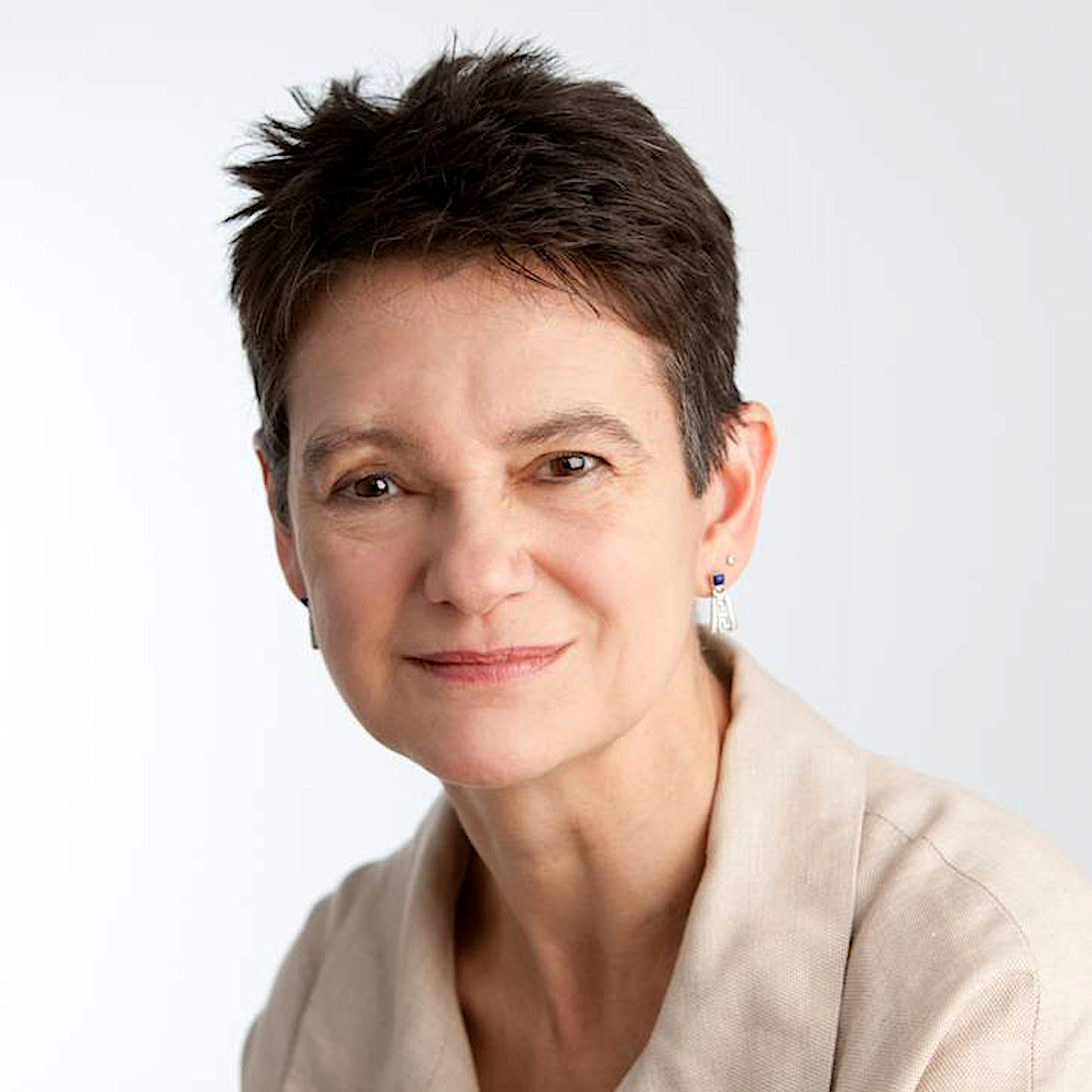 IMF PodcastsWomen in Economics: Diane Coyle on Making Economics BetterIn this third episode of Women in Economics, distinguished British economist Diane Coyle speaks with journalist Rhoda Metcalfe about how the lack of diversity within the economic profession is holding it back. Coyle is the Bennett Professor of Public Policy at the University of Cambridge and author of several books, some of which challenge conventional economic wisdom such as GDP. In this podcast, Coyle says economists need to start working with other disciplines if they are to live up to the influence they have in public policy and help deliver solutions to the complex challenges the world is now...2021-11-1820 min
IMF PodcastsWomen in Economics: Diane Coyle on Making Economics BetterIn this third episode of Women in Economics, distinguished British economist Diane Coyle speaks with journalist Rhoda Metcalfe about how the lack of diversity within the economic profession is holding it back. Coyle is the Bennett Professor of Public Policy at the University of Cambridge and author of several books, some of which challenge conventional economic wisdom such as GDP. In this podcast, Coyle says economists need to start working with other disciplines if they are to live up to the influence they have in public policy and help deliver solutions to the complex challenges the world is now...2021-11-1820 min The CapitalistDiane Coyle on Cogs and MonstersIs economics fit for the modern world?That’s the basic question posed in Cogs and Monsters, the new book from Diane Coyle, one of Britain’s most eminent economists and our guest this week.Part critique of her own profession, part manifesto for a better, more up-to-date economics, Diane’s book goes beyond the standard criticisms of economics and gets into the the really big issues - not least, what should the role of an economist actually be? Should economics describe the world as it is, or as it should...2021-11-0436 min
The CapitalistDiane Coyle on Cogs and MonstersIs economics fit for the modern world?That’s the basic question posed in Cogs and Monsters, the new book from Diane Coyle, one of Britain’s most eminent economists and our guest this week.Part critique of her own profession, part manifesto for a better, more up-to-date economics, Diane’s book goes beyond the standard criticisms of economics and gets into the the really big issues - not least, what should the role of an economist actually be? Should economics describe the world as it is, or as it should...2021-11-0436 min Public lecture podcastsDiane Coyle and Martin Ford: Will artificial intelligence transform everything?Diane Coyle and Martin Ford debate the impact of artificial intelligence on life, work and the economy.
Part of the University of Bath Institute for Policy Research (IPR) and Bristol Ideas conference, 'Is it time for Universal Basic Income?': https://www.bristolideas.co.uk/attend/is-it-time-for-universal-basic-income/
This event took place on 6 October 2021.2021-10-2826 min
Public lecture podcastsDiane Coyle and Martin Ford: Will artificial intelligence transform everything?Diane Coyle and Martin Ford debate the impact of artificial intelligence on life, work and the economy.
Part of the University of Bath Institute for Policy Research (IPR) and Bristol Ideas conference, 'Is it time for Universal Basic Income?': https://www.bristolideas.co.uk/attend/is-it-time-for-universal-basic-income/
This event took place on 6 October 2021.2021-10-2826 min Fuel Your Imagination Through Your Ears With Full AudiobookCogs and Monsters: What Economics Is, and What It Should Be Audiobook by Diane CoyleListen to this audiobook in full for free onhttps://hotaudiobook.com/freeID: 545718
Title: Cogs and Monsters: What Economics Is, and What It Should Be
Author: Diane Coyle
Narrator: Gina Rogers
Format: Unabridged
Length: 07:12:00
Language: English
Release date: 10-12-21
Publisher: Ascent Audio
Genres: Politics, Public Policy
Summary:
Digital technology, big data, big tech, machine learning, and AI are revolutionizing both the tools of economics and the phenomena it seeks to measure, understand, and shape. In Cogs and Monsters, Diane Coyle explores the enormous problems—but also opportunities—facing economics today if it is to respond effectively to these dizzying changes and...2021-10-127h 12
Fuel Your Imagination Through Your Ears With Full AudiobookCogs and Monsters: What Economics Is, and What It Should Be Audiobook by Diane CoyleListen to this audiobook in full for free onhttps://hotaudiobook.com/freeID: 545718
Title: Cogs and Monsters: What Economics Is, and What It Should Be
Author: Diane Coyle
Narrator: Gina Rogers
Format: Unabridged
Length: 07:12:00
Language: English
Release date: 10-12-21
Publisher: Ascent Audio
Genres: Politics, Public Policy
Summary:
Digital technology, big data, big tech, machine learning, and AI are revolutionizing both the tools of economics and the phenomena it seeks to measure, understand, and shape. In Cogs and Monsters, Diane Coyle explores the enormous problems—but also opportunities—facing economics today if it is to respond effectively to these dizzying changes and...2021-10-127h 12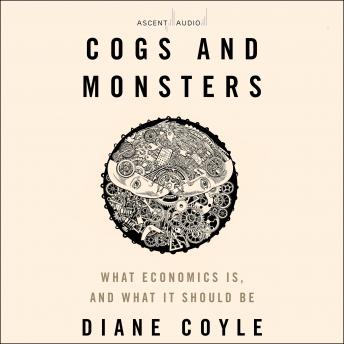 Step Inside This Thrilling Full Audiobook And Feel The Difference.Cogs and Monsters: What Economics Is, and What It Should Be by Diane CoylePlease visithttps://thebookvoice.com/podcasts/1/audiobook/545718to listen full audiobooks.
Title: Cogs and Monsters: What Economics Is, and What It Should Be
Author: Diane Coyle
Narrator: Gina Rogers
Format: Unabridged Audiobook
Length: 7 hours 12 minutes
Release date: October 12, 2021
Genres: Current Affairs, Law, & Politics
Publisher's Summary:
Digital technology, big data, big tech, machine learning, and AI are revolutionizing both the tools of economics and the phenomena it seeks to measure, understand, and shape. In Cogs and Monsters, Diane Coyle explores the enormous problems—but also opportunities—facing economics today if it is to respond effectively to these dizzying changes and help policymakers solv...2021-10-127h 12
Step Inside This Thrilling Full Audiobook And Feel The Difference.Cogs and Monsters: What Economics Is, and What It Should Be by Diane CoylePlease visithttps://thebookvoice.com/podcasts/1/audiobook/545718to listen full audiobooks.
Title: Cogs and Monsters: What Economics Is, and What It Should Be
Author: Diane Coyle
Narrator: Gina Rogers
Format: Unabridged Audiobook
Length: 7 hours 12 minutes
Release date: October 12, 2021
Genres: Current Affairs, Law, & Politics
Publisher's Summary:
Digital technology, big data, big tech, machine learning, and AI are revolutionizing both the tools of economics and the phenomena it seeks to measure, understand, and shape. In Cogs and Monsters, Diane Coyle explores the enormous problems—but also opportunities—facing economics today if it is to respond effectively to these dizzying changes and help policymakers solv...2021-10-127h 12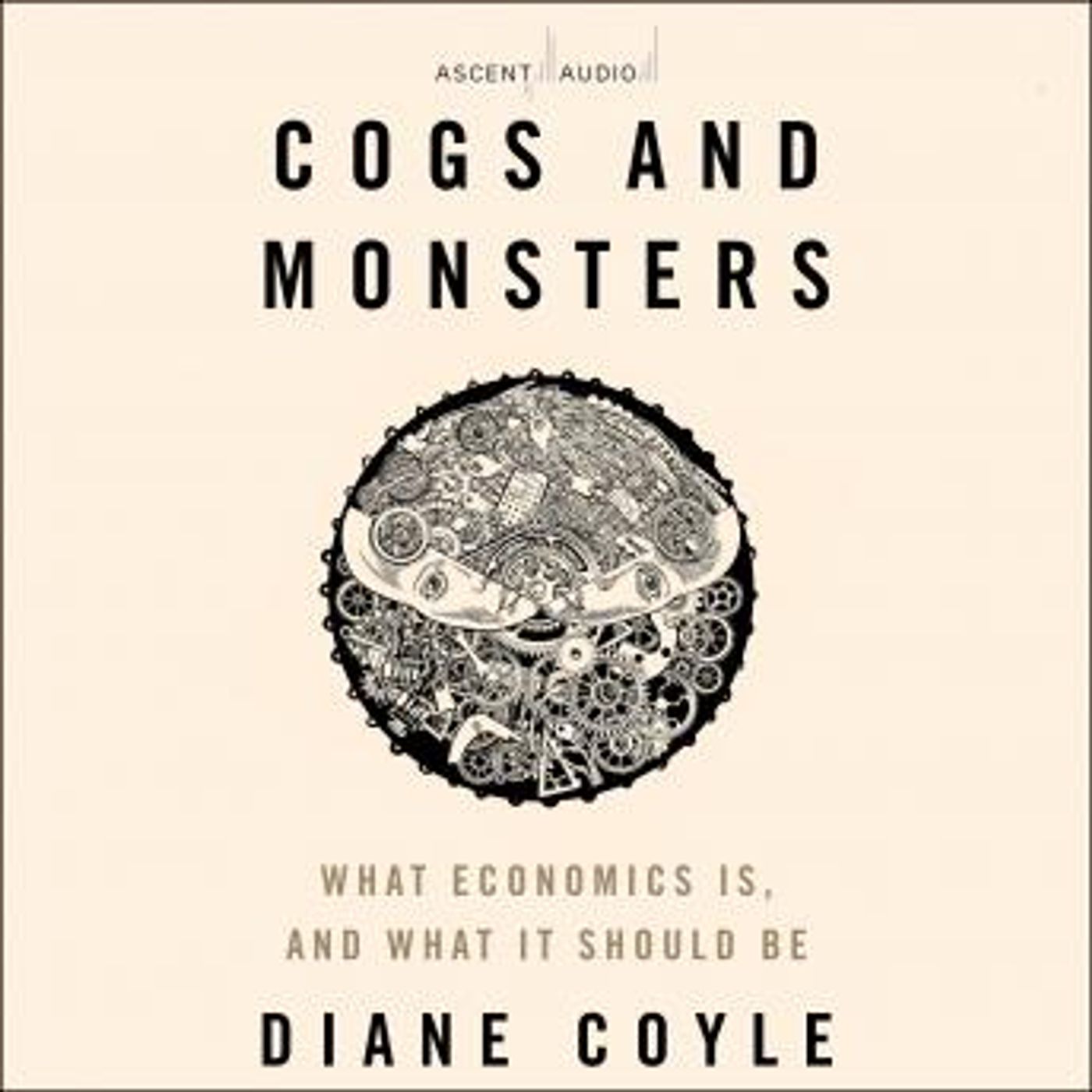 Top Full Audiobooks in Non-Fiction, Current Affairs, Law, & PoliticsCogs and Monsters: What Economics Is, and What It Should Be by Diane CoylePlease visit https://thebookvoice.com/podcasts/1/audiobook/545718 to listen full audiobooks. Title: Cogs and Monsters: What Economics Is, and What It Should Be Author: Diane Coyle Narrator: Gina Rogers Format: Unabridged Audiobook Length: 7 hours 12 minutes Release date: October 12, 2021 Genres: Current Affairs, Law, & Politics Publisher's Summary: Digital technology, big data, big tech, machine learning, and AI are revolutionizing both the tools of economics and the phenomena it seeks to measure, understand, and shape. In Cogs and Monsters, Diane Coyle explores the enormous problems—but also opportunities—facing economics today if it is to respond effectively to these dizzying changes and help poli...2021-10-1230 min
Top Full Audiobooks in Non-Fiction, Current Affairs, Law, & PoliticsCogs and Monsters: What Economics Is, and What It Should Be by Diane CoylePlease visit https://thebookvoice.com/podcasts/1/audiobook/545718 to listen full audiobooks. Title: Cogs and Monsters: What Economics Is, and What It Should Be Author: Diane Coyle Narrator: Gina Rogers Format: Unabridged Audiobook Length: 7 hours 12 minutes Release date: October 12, 2021 Genres: Current Affairs, Law, & Politics Publisher's Summary: Digital technology, big data, big tech, machine learning, and AI are revolutionizing both the tools of economics and the phenomena it seeks to measure, understand, and shape. In Cogs and Monsters, Diane Coyle explores the enormous problems—but also opportunities—facing economics today if it is to respond effectively to these dizzying changes and help poli...2021-10-1230 min Unlock Top Full Audiobooks in Non-Fiction, Current Affairs, Law, & PoliticsCogs and Monsters: What Economics Is, and What It Should Be by Diane CoylePlease visithttps://thebookvoice.com/podcasts/1/audiobook/545718to listen full audiobooks.
Title: Cogs and Monsters: What Economics Is, and What It Should Be
Author: Diane Coyle
Narrator: Gina Rogers
Format: Unabridged Audiobook
Length: 7 hours 12 minutes
Release date: October 12, 2021
Genres: Current Affairs, Law, & Politics
Publisher's Summary:
Digital technology, big data, big tech, machine learning, and AI are revolutionizing both the tools of economics and the phenomena it seeks to measure, understand, and shape. In Cogs and Monsters, Diane Coyle explores the enormous problems—but also opportunities—facing economics today if it is to respond effectively to these dizzying changes and help policymakers solv...2021-10-127h 12
Unlock Top Full Audiobooks in Non-Fiction, Current Affairs, Law, & PoliticsCogs and Monsters: What Economics Is, and What It Should Be by Diane CoylePlease visithttps://thebookvoice.com/podcasts/1/audiobook/545718to listen full audiobooks.
Title: Cogs and Monsters: What Economics Is, and What It Should Be
Author: Diane Coyle
Narrator: Gina Rogers
Format: Unabridged Audiobook
Length: 7 hours 12 minutes
Release date: October 12, 2021
Genres: Current Affairs, Law, & Politics
Publisher's Summary:
Digital technology, big data, big tech, machine learning, and AI are revolutionizing both the tools of economics and the phenomena it seeks to measure, understand, and shape. In Cogs and Monsters, Diane Coyle explores the enormous problems—but also opportunities—facing economics today if it is to respond effectively to these dizzying changes and help policymakers solv...2021-10-127h 12 What Could Go Right?GDP Ain't Measuring Up with Diane CoyleWhen you hear the word "economics," do you hit the snooze button? Yet, how we structure our economies, whom they serve, and even what we decide to measure has an enormous impact. A few changes could mean the difference between a world we've sucked dry and one where we all flourish. We talk through the unknown outcomes of a post-COVID economy and why we need to move beyond GDP with Diane Coyle, co-director of the Bennett Institute for Public Policy at the University of Cambridge, who conducts interdisciplinary research on key policy challenges of our times.2021-09-2252 min
What Could Go Right?GDP Ain't Measuring Up with Diane CoyleWhen you hear the word "economics," do you hit the snooze button? Yet, how we structure our economies, whom they serve, and even what we decide to measure has an enormous impact. A few changes could mean the difference between a world we've sucked dry and one where we all flourish. We talk through the unknown outcomes of a post-COVID economy and why we need to move beyond GDP with Diane Coyle, co-director of the Bennett Institute for Public Policy at the University of Cambridge, who conducts interdisciplinary research on key policy challenges of our times.2021-09-2252 min Ben Yeoh ChatsDiane Coyle: innovation, intangibles, inequality, sustainability and measuring beyond GDPEconomist Diane Coyle is the Bennett Professor of Public Policy, Cambridge University. She co-directs the Bennett Institute, where she heads research under the themes of progress and productivity. Her work has touched innovation, technology and intangibles; sustainability, inequality and measuring beyond GDP.
We discuss the challenges of the current narrowness in economics both in terms of the diversity of people it attracts and the paucity of wider ranging interdisciplinary thinking.
Diane’s 1997 book (The Weightless World) was prescient over many technology, innovation and intangibles trends but sustainability was a missing hole. We discuss sustainability and what...2021-08-311h 09
Ben Yeoh ChatsDiane Coyle: innovation, intangibles, inequality, sustainability and measuring beyond GDPEconomist Diane Coyle is the Bennett Professor of Public Policy, Cambridge University. She co-directs the Bennett Institute, where she heads research under the themes of progress and productivity. Her work has touched innovation, technology and intangibles; sustainability, inequality and measuring beyond GDP.
We discuss the challenges of the current narrowness in economics both in terms of the diversity of people it attracts and the paucity of wider ranging interdisciplinary thinking.
Diane’s 1997 book (The Weightless World) was prescient over many technology, innovation and intangibles trends but sustainability was a missing hole. We discuss sustainability and what...2021-08-311h 09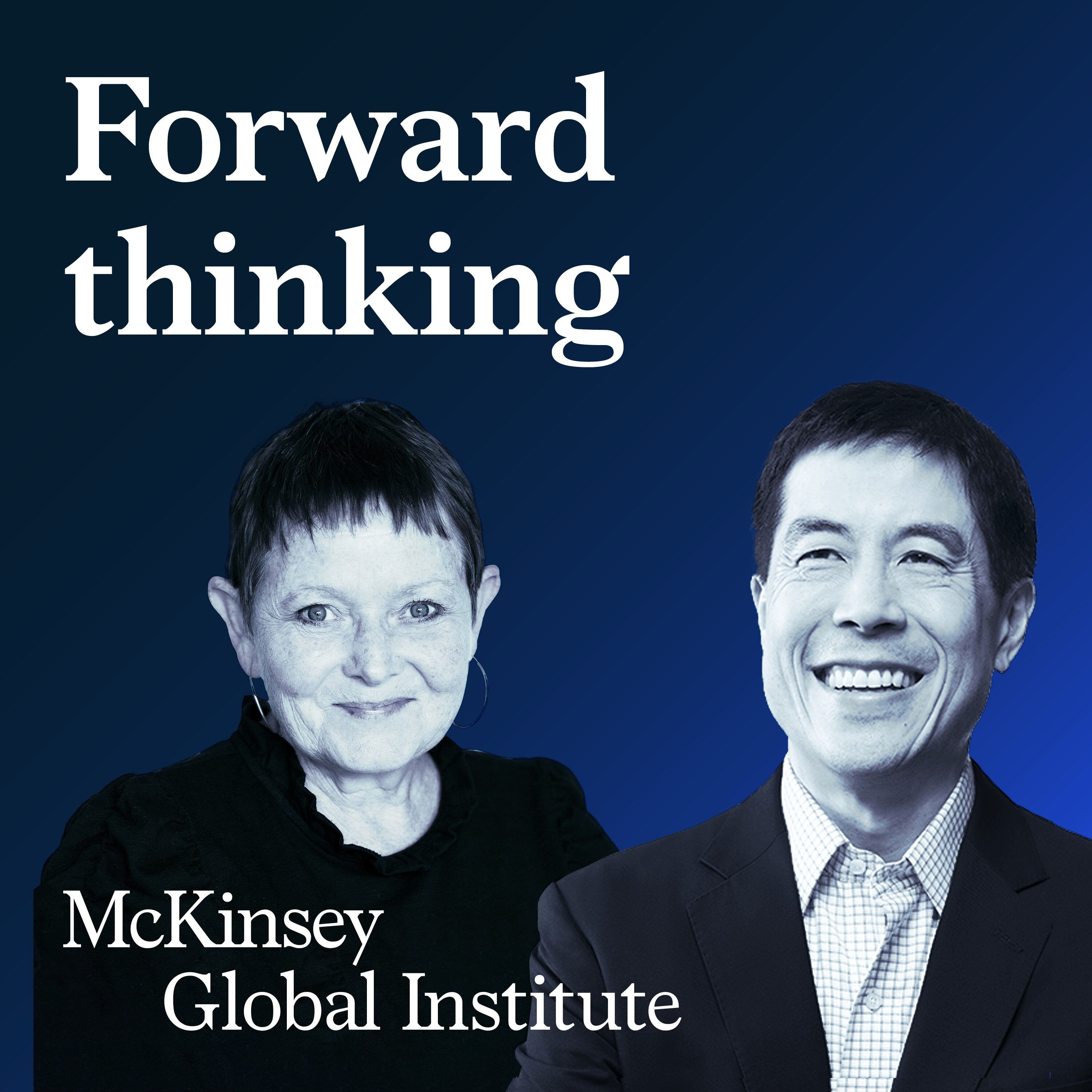 Forward ThinkingForward Thinking on measuring GDP and productivity with Diane Coyle“Digital is changing the way that we create value in society. Where in value chains does that happen? Who gets the benefits? And is there a gap between what we measure in dollars and the economic welfare, the benefits, that people can get from these digital services? There's a wedge opening up between the categories and the dollar values that we can assign to activities and the benefits that people are getting and who is getting those benefits, as well.” Diane Coyle is known for her critique of how economic activity has been measured and valued. She’s written about...2021-05-2626 min
Forward ThinkingForward Thinking on measuring GDP and productivity with Diane Coyle“Digital is changing the way that we create value in society. Where in value chains does that happen? Who gets the benefits? And is there a gap between what we measure in dollars and the economic welfare, the benefits, that people can get from these digital services? There's a wedge opening up between the categories and the dollar values that we can assign to activities and the benefits that people are getting and who is getting those benefits, as well.” Diane Coyle is known for her critique of how economic activity has been measured and valued. She’s written about...2021-05-2626 min The Health Foundation podcastWising up to levelling up – with Professor Diane Coyle and Sir Howard Bernstein
‘Levelling up’ has become an earworm. It featured highly in the Conservative manifesto in 2019, which was referring to improving infrastructure, skills, productivity and economic growth across the country. The idea is to make the UK economy less lop-sided, and less focused on London and the South East.
The aim of ‘levelling up’ has gained even more potency because of the pandemic. For those working in health, policies to level up might also help tackle avoidable inequalities set out by Marmot and others, caused by factors injuring health like poor housing, low quality work, and low skills. In short, poverty a...2021-04-2238 min
The Health Foundation podcastWising up to levelling up – with Professor Diane Coyle and Sir Howard Bernstein
‘Levelling up’ has become an earworm. It featured highly in the Conservative manifesto in 2019, which was referring to improving infrastructure, skills, productivity and economic growth across the country. The idea is to make the UK economy less lop-sided, and less focused on London and the South East.
The aim of ‘levelling up’ has gained even more potency because of the pandemic. For those working in health, policies to level up might also help tackle avoidable inequalities set out by Marmot and others, caused by factors injuring health like poor housing, low quality work, and low skills. In short, poverty a...2021-04-2238 min Rethinking PodcastDiane Coyle, Andrea Renda & Charlotte Stix - Socioeconomics of Disruptive Tech - #003For this third interview in this series we are joined by Diane Coyle (University of Cambridge), Andrea Renda (CEPS and College of Europe) and Charlotte Stix (TU Eindhoven and University of Cambridge). We will discuss what makes the digital economy unique and how technologies are shaped by their social environment. We will also focus on how disruptive technologies as AI are affected by and interact with policies and regulation, especially in the context of the European Union. Lastly we will zoom-in on how all this relates to the way we teach economics, especially in relation to the assumptions in...2021-04-211h 00
Rethinking PodcastDiane Coyle, Andrea Renda & Charlotte Stix - Socioeconomics of Disruptive Tech - #003For this third interview in this series we are joined by Diane Coyle (University of Cambridge), Andrea Renda (CEPS and College of Europe) and Charlotte Stix (TU Eindhoven and University of Cambridge). We will discuss what makes the digital economy unique and how technologies are shaped by their social environment. We will also focus on how disruptive technologies as AI are affected by and interact with policies and regulation, especially in the context of the European Union. Lastly we will zoom-in on how all this relates to the way we teach economics, especially in relation to the assumptions in...2021-04-211h 00 Empowered BelongingCentenary Podcast - Diane CoyleProfessor Diane Coyle is an economist and a former advisor to the UK Treasury. She is currently the Bennett Professor of Public Policy at the University of Cambridge, co-directing the Bennett Institute.
Photo Credits
Phillip Dunne MP | by the House of Commons | CC BY 3.0
Mara Yamauchi | by Marimo Images
Audio Credits
Nothing | by Pitx | CC BY-NC-SA 2.02021-04-0706 min
Empowered BelongingCentenary Podcast - Diane CoyleProfessor Diane Coyle is an economist and a former advisor to the UK Treasury. She is currently the Bennett Professor of Public Policy at the University of Cambridge, co-directing the Bennett Institute.
Photo Credits
Phillip Dunne MP | by the House of Commons | CC BY 3.0
Mara Yamauchi | by Marimo Images
Audio Credits
Nothing | by Pitx | CC BY-NC-SA 2.02021-04-0706 min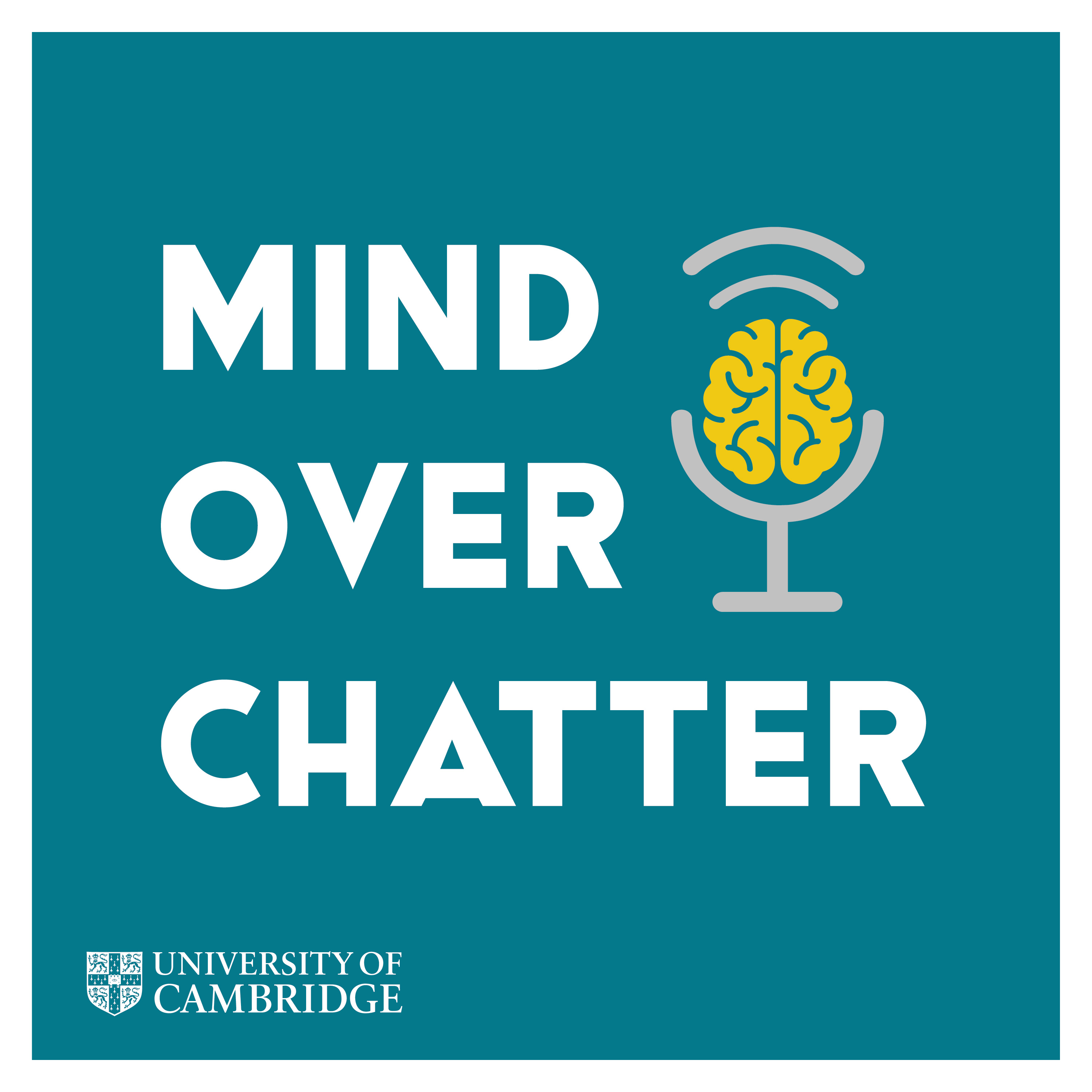 Mind Over ChatterCreating a future that is not like the pastThe future is becoming harder to predict thanks to climate change and a global pandemic. But a large part of what the future will look like is in our own hands. The biggest challenge to creating a better future may be political rather than scientific or technological. In this episode, Diane Coyle, professor of public policy, Laura Diaz Anadon, professor of climate change policy, and architectural engineer, Ruchi Choudhary, join us to talk about how we can build a future that might not be anything like the past.We cover topics like innovation, GDP, and ho...2020-12-1545 min
Mind Over ChatterCreating a future that is not like the pastThe future is becoming harder to predict thanks to climate change and a global pandemic. But a large part of what the future will look like is in our own hands. The biggest challenge to creating a better future may be political rather than scientific or technological. In this episode, Diane Coyle, professor of public policy, Laura Diaz Anadon, professor of climate change policy, and architectural engineer, Ruchi Choudhary, join us to talk about how we can build a future that might not be anything like the past.We cover topics like innovation, GDP, and ho...2020-12-1545 min SNS OnlineCorona Chronicles No.18On the day Marks & Spencer announce 7000 job cuts, we speak to Professor *Diane Coyle CBE - former adviser to the UK Treasury and Bennett Professor of Public Policy at University of Cambridge, about the worst recession in over 300 years, and what is yet to come.
*Author of The Weightless World and Markets, State & People: Economics for Public Policy.
https://www.amazon.co.uk/Markets-State-People-Diane-Coyle/dp/0691179263
Features the latest world news dated 18.08.20.
A brand new podcast from the makers of SNS Online. Corona Chronicles offers up a document of an extraordinary time in living memory, through the people it affects. In...2020-08-1813 min
SNS OnlineCorona Chronicles No.18On the day Marks & Spencer announce 7000 job cuts, we speak to Professor *Diane Coyle CBE - former adviser to the UK Treasury and Bennett Professor of Public Policy at University of Cambridge, about the worst recession in over 300 years, and what is yet to come.
*Author of The Weightless World and Markets, State & People: Economics for Public Policy.
https://www.amazon.co.uk/Markets-State-People-Diane-Coyle/dp/0691179263
Features the latest world news dated 18.08.20.
A brand new podcast from the makers of SNS Online. Corona Chronicles offers up a document of an extraordinary time in living memory, through the people it affects. In...2020-08-1813 min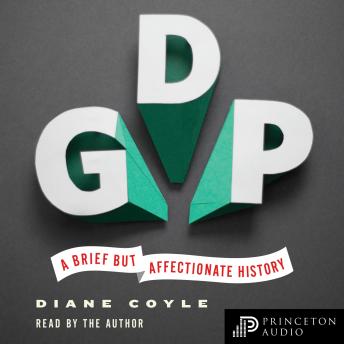 Savor An Addictive Full Audiobook And Elevate Your Mindset.GDP: A Brief but Affectionate History - Revised and expanded Edition by Diane CoylePlease visithttps://thebookvoice.com/podcasts/1/audiobook/438087to listen full audiobooks.
Title: GDP: A Brief but Affectionate History - Revised and expanded Edition
Author: Diane Coyle
Narrator: Diane Coyle
Format: Unabridged Audiobook
Length: 4 hours 34 minutes
Release date: August 4, 2020
Genres: Economics
Publisher's Summary:
This audiobook narrated by acclaimed economist Diane Coyle explains how GDP came to rule our lives—and why it needs to change Why did the size of the U.S. economy increase by 3 percent on one day in mid-2013—or Ghana's balloon by 60 percent overnight in 2010? Why did the U.K. financial industry show its fastest expansion ever at the...2020-08-044h 34
Savor An Addictive Full Audiobook And Elevate Your Mindset.GDP: A Brief but Affectionate History - Revised and expanded Edition by Diane CoylePlease visithttps://thebookvoice.com/podcasts/1/audiobook/438087to listen full audiobooks.
Title: GDP: A Brief but Affectionate History - Revised and expanded Edition
Author: Diane Coyle
Narrator: Diane Coyle
Format: Unabridged Audiobook
Length: 4 hours 34 minutes
Release date: August 4, 2020
Genres: Economics
Publisher's Summary:
This audiobook narrated by acclaimed economist Diane Coyle explains how GDP came to rule our lives—and why it needs to change Why did the size of the U.S. economy increase by 3 percent on one day in mid-2013—or Ghana's balloon by 60 percent overnight in 2010? Why did the U.K. financial industry show its fastest expansion ever at the...2020-08-044h 34 Dive Into A Ground-Breaking Full Audiobook On Your Commute.GDP by Diane CoylePlease visithttps://thebookvoice.com/podcasts/2/audible/153877to listen full audiobooks.
Title: GDP
Author: Diane Coyle
Narrator: Diane Coyle
Format: mp3
Length: 4 hrs and 34 mins
Release date: 08-04-20
Ratings: 4 out of 5 stars, 13 ratings
Genres: Economic History
Publisher's Summary:
Why did the size of the US economy increase by three percent on one day in mid-2013 - or Ghana's balloon by 60 percent overnight in 2010? Why did the UK financial industry show its fastest expansion ever at the end of 2008 - just as the world’s financial system went into meltdown? And why was Greece’s chief statistician charged with treason in 2013 for...2020-08-044h 34
Dive Into A Ground-Breaking Full Audiobook On Your Commute.GDP by Diane CoylePlease visithttps://thebookvoice.com/podcasts/2/audible/153877to listen full audiobooks.
Title: GDP
Author: Diane Coyle
Narrator: Diane Coyle
Format: mp3
Length: 4 hrs and 34 mins
Release date: 08-04-20
Ratings: 4 out of 5 stars, 13 ratings
Genres: Economic History
Publisher's Summary:
Why did the size of the US economy increase by three percent on one day in mid-2013 - or Ghana's balloon by 60 percent overnight in 2010? Why did the UK financial industry show its fastest expansion ever at the end of 2008 - just as the world’s financial system went into meltdown? And why was Greece’s chief statistician charged with treason in 2013 for...2020-08-044h 34 Get New Full Audiobooks in Business & Economics, EconomicsGDP: A Brief but Affectionate History - Revised and expanded Edition by Diane CoylePlease visithttps://thebookvoice.com/podcasts/1/audiobook/438087to listen full audiobooks.
Title: GDP: A Brief but Affectionate History - Revised and expanded Edition
Author: Diane Coyle
Narrator: Diane Coyle
Format: Unabridged Audiobook
Length: 4 hours 34 minutes
Release date: August 4, 2020
Genres: Economics
Publisher's Summary:
This audiobook narrated by acclaimed economist Diane Coyle explains how GDP came to rule our lives—and why it needs to change Why did the size of the U.S. economy increase by 3 percent on one day in mid-2013—or Ghana's balloon by 60 percent overnight in 2010? Why did the U.K. financial industry show its fastest expansion ever at the...2020-08-044h 34
Get New Full Audiobooks in Business & Economics, EconomicsGDP: A Brief but Affectionate History - Revised and expanded Edition by Diane CoylePlease visithttps://thebookvoice.com/podcasts/1/audiobook/438087to listen full audiobooks.
Title: GDP: A Brief but Affectionate History - Revised and expanded Edition
Author: Diane Coyle
Narrator: Diane Coyle
Format: Unabridged Audiobook
Length: 4 hours 34 minutes
Release date: August 4, 2020
Genres: Economics
Publisher's Summary:
This audiobook narrated by acclaimed economist Diane Coyle explains how GDP came to rule our lives—and why it needs to change Why did the size of the U.S. economy increase by 3 percent on one day in mid-2013—or Ghana's balloon by 60 percent overnight in 2010? Why did the U.K. financial industry show its fastest expansion ever at the...2020-08-044h 34 The UK in a Changing EuropeBrexit Breakdown Podcast with Diane Coyle and Anand MenonIn this episode, Professor Diane Coyle, former adviser to UK Treasury and co-director of the Bennett Institute for Public Policy at Cambridge University, discusses everything from whether we can measure the size of an economy, and how much we still get wrong, to the economic impact of Covid-19 to whether economists can and should do more to explain the economy to non-economists.2020-07-2427 min
The UK in a Changing EuropeBrexit Breakdown Podcast with Diane Coyle and Anand MenonIn this episode, Professor Diane Coyle, former adviser to UK Treasury and co-director of the Bennett Institute for Public Policy at Cambridge University, discusses everything from whether we can measure the size of an economy, and how much we still get wrong, to the economic impact of Covid-19 to whether economists can and should do more to explain the economy to non-economists.2020-07-2427 min CoronaNomicsCalculating An Exit Strategy | Gus O'Donnell & Diane CoyleHow should policymakers balance life and death with jobs, incomes, mental health and education? Is there a way we can consider all these factors at the same time? Do we have the statistics to do it? And are the measures we’re currently using all that helpful?Ben Chu (The Independent) and Lizzy Burden (The Telegraph) speak to Lord Gus O’Donnell (former UK Cabinet Secretary) and Diane Coyle (Cambridge University). Music by Slenderbeats2020-06-0200 min
CoronaNomicsCalculating An Exit Strategy | Gus O'Donnell & Diane CoyleHow should policymakers balance life and death with jobs, incomes, mental health and education? Is there a way we can consider all these factors at the same time? Do we have the statistics to do it? And are the measures we’re currently using all that helpful?Ben Chu (The Independent) and Lizzy Burden (The Telegraph) speak to Lord Gus O’Donnell (former UK Cabinet Secretary) and Diane Coyle (Cambridge University). Music by Slenderbeats2020-06-0200 min Hear This IdeaDiane Coyle on Tech Giants and Digital MonopoliesProfessor Diane Coyle, CBE, is an economist and co-directs the Bennett Institute for Public Policy. Her current focus is on the digital economy and competition policy. She is the author of more than 15 economics books, and creator of the popular 'Enlightened Economics' blog. In this episode, we talk about the effects of digital monopoloes. How different are they from other kinds of monopoly? Is there anything new or concerning about their use of big data and algorithm-tailored adverting? And should we try to break them up?
You can read more on this episode's accompanying write-up: hearthisidea.com...2020-03-0227 min
Hear This IdeaDiane Coyle on Tech Giants and Digital MonopoliesProfessor Diane Coyle, CBE, is an economist and co-directs the Bennett Institute for Public Policy. Her current focus is on the digital economy and competition policy. She is the author of more than 15 economics books, and creator of the popular 'Enlightened Economics' blog. In this episode, we talk about the effects of digital monopoloes. How different are they from other kinds of monopoly? Is there anything new or concerning about their use of big data and algorithm-tailored adverting? And should we try to break them up?
You can read more on this episode's accompanying write-up: hearthisidea.com...2020-03-0227 min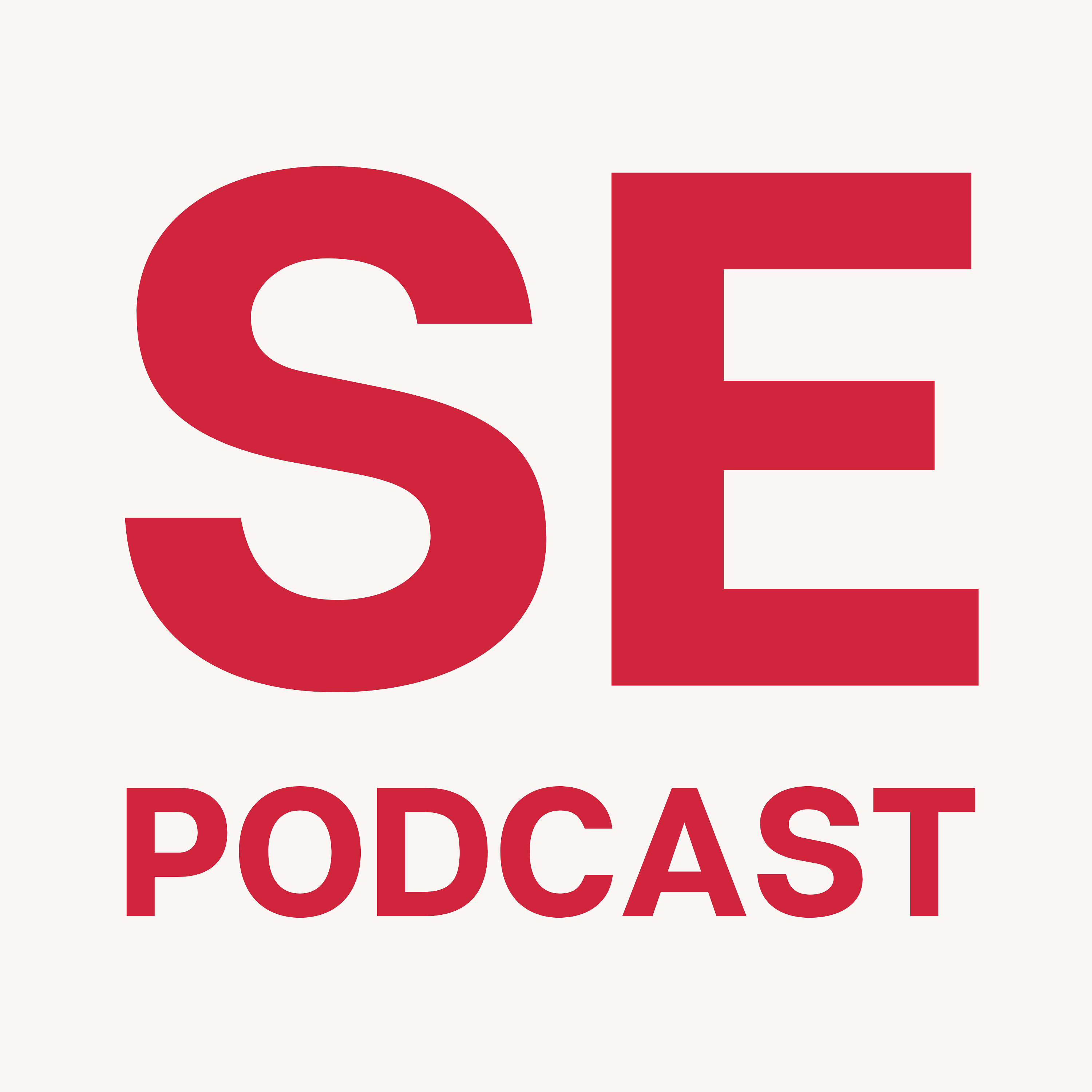 Social Europe PodcastDiane Coyle: The Technology Challenge to Public Policy
Listen to Social Europe Editor in Chief Henning Meyer in discussion with Diane Coyle. They discuss the development of technology and what challenges it poses to economics as a discipline and public policy more widely.
Diane Coyle is the Bennett Professor of Public Policy at the University of Cambridge and was previously Professor of Economics at the University of Manchester. She has held a number of public service roles including Vice Chair of the BBC Trust (2006-2014), member of the Competition Commission (2001-2009), and member of the Migration Advisory Committee (2009-2014).
You might also find our regular articles, blogs and...2019-07-1831 min
Social Europe PodcastDiane Coyle: The Technology Challenge to Public Policy
Listen to Social Europe Editor in Chief Henning Meyer in discussion with Diane Coyle. They discuss the development of technology and what challenges it poses to economics as a discipline and public policy more widely.
Diane Coyle is the Bennett Professor of Public Policy at the University of Cambridge and was previously Professor of Economics at the University of Manchester. She has held a number of public service roles including Vice Chair of the BBC Trust (2006-2014), member of the Competition Commission (2001-2009), and member of the Migration Advisory Committee (2009-2014).
You might also find our regular articles, blogs and...2019-07-1831 min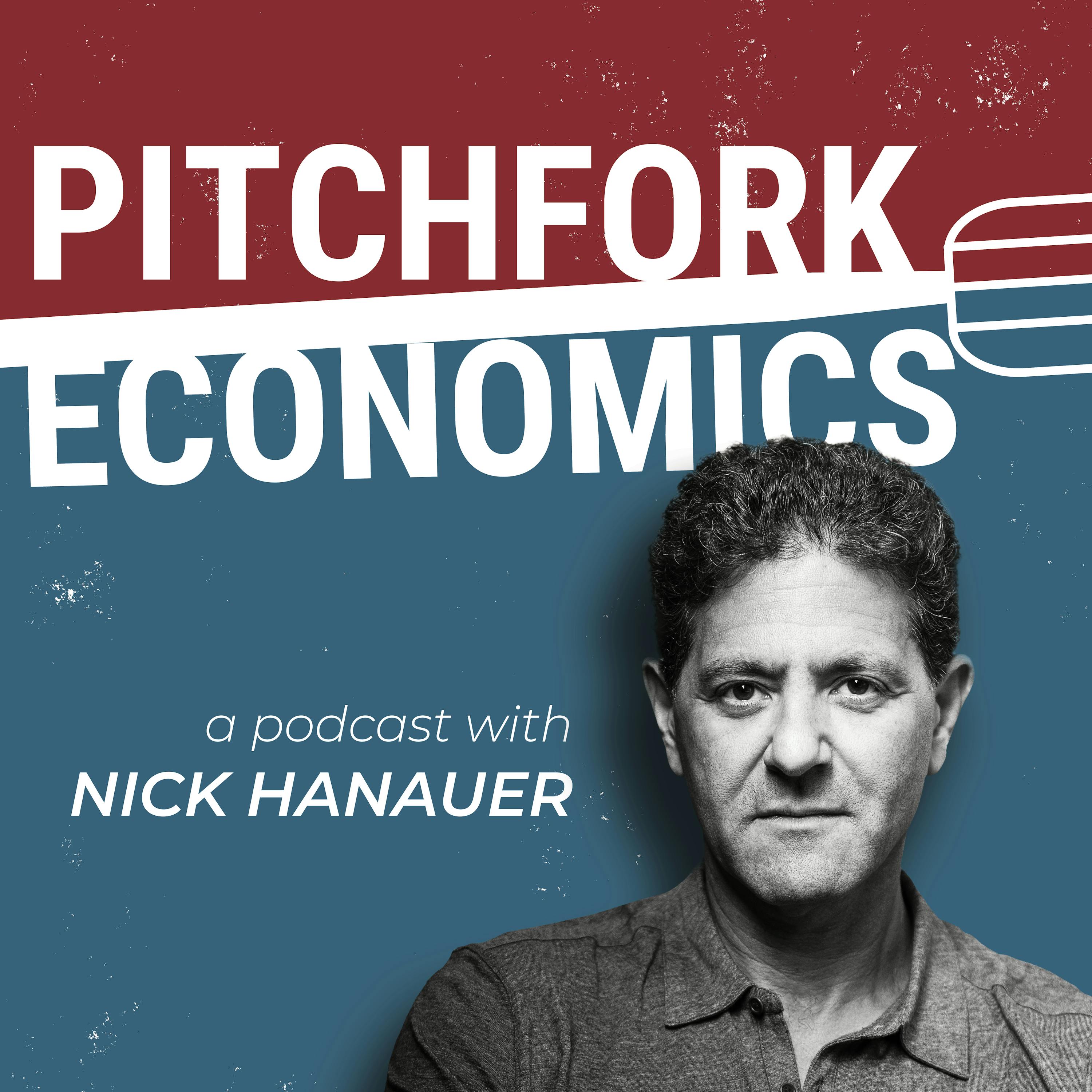 Pitchfork Economics with Nick HanauerHow should we measure the economy? (with Diane Coyle)Pop quiz: What does “GDP” stand for? And now, quickly: what the hell does “gross domestic product” even mean? It turns out, the way we measure the economy changes the way we manage the economy, so if we want to broadly improve the lives of all Americans we need to measure the things that really matter.Diane Coyle: Bennett Professor of Public Policy at the University of Cambridge. Former advisor to the UK treasury. Author of numerous books, most recently GDP: A Brief But Affectionate History, The Economics of Enough, and The Soulful Science. Founder of the consulta...2019-01-0735 min
Pitchfork Economics with Nick HanauerHow should we measure the economy? (with Diane Coyle)Pop quiz: What does “GDP” stand for? And now, quickly: what the hell does “gross domestic product” even mean? It turns out, the way we measure the economy changes the way we manage the economy, so if we want to broadly improve the lives of all Americans we need to measure the things that really matter.Diane Coyle: Bennett Professor of Public Policy at the University of Cambridge. Former advisor to the UK treasury. Author of numerous books, most recently GDP: A Brief But Affectionate History, The Economics of Enough, and The Soulful Science. Founder of the consulta...2019-01-0735 min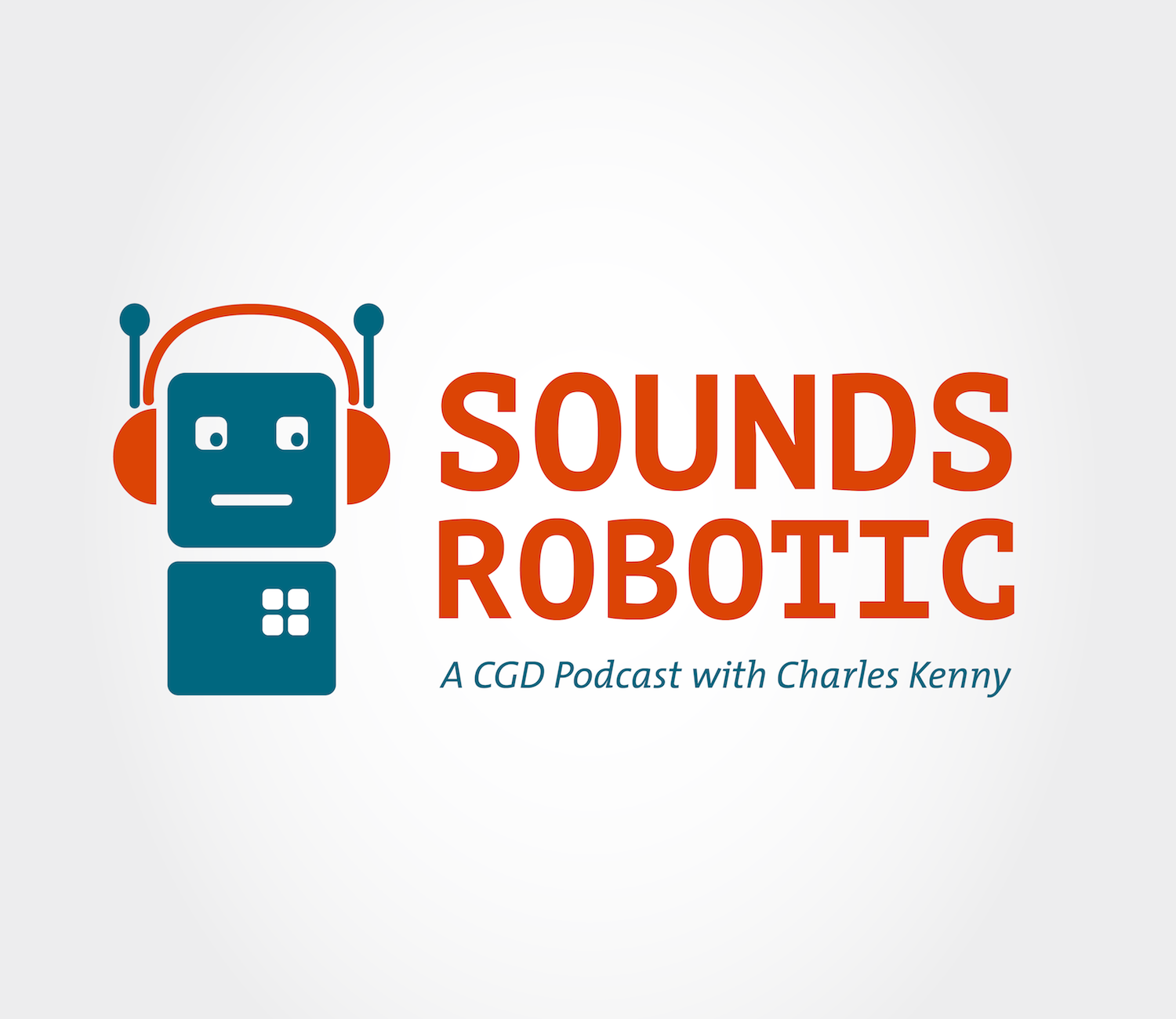 The CGD PodcastSounds Robotic: Diane CoyleIn this first episode of new CGD podcast miniseries Sounds Robotic, host Charles Kenny talks with Cambridge University’s Diane Coyle about fears of job loss and inequality from advances in robotics and automation, as well as the regional impact of past technological change and what it might imply on a global scale. 2018-12-0327 min
The CGD PodcastSounds Robotic: Diane CoyleIn this first episode of new CGD podcast miniseries Sounds Robotic, host Charles Kenny talks with Cambridge University’s Diane Coyle about fears of job loss and inequality from advances in robotics and automation, as well as the regional impact of past technological change and what it might imply on a global scale. 2018-12-0327 min Opinion Has ItDiane Coyle on Measuring, and Managing, More Sustainable GrowthFor more than two generations, economic orthodoxy has held that governments that invest and regulate the least govern best. But Diane Coyle, Professor of Public Policy at the University of Cambridge, discusses how state-led investment and regulation can boost economic growth and human welfare. Our GDPR privacy policy was updated on August 8, 2022. Visit acast.com/privacy for more information.2018-11-2025 min
Opinion Has ItDiane Coyle on Measuring, and Managing, More Sustainable GrowthFor more than two generations, economic orthodoxy has held that governments that invest and regulate the least govern best. But Diane Coyle, Professor of Public Policy at the University of Cambridge, discusses how state-led investment and regulation can boost economic growth and human welfare. Our GDPR privacy policy was updated on August 8, 2022. Visit acast.com/privacy for more information.2018-11-2025 min University of CambridgeDiane Coyle - How do we know how well off we are?Diane Coyle - How do we know how well off we are? by University of Cambridge2018-10-0857 min
University of CambridgeDiane Coyle - How do we know how well off we are?Diane Coyle - How do we know how well off we are? by University of Cambridge2018-10-0857 min Economic Rockstar159: Diane Coyle Rebroadcast on GDP, Its Shortcomings and Alternative MeasuresThis is a rebroadcast of a conversation I had with professor Diane Coyle. It first featured as episode 69 on 21 January 2016. Check out www.economicrockstar.com/dianecoyle for all links, books and resources mentioned in this episode. Support the podcast on Patreon for as little as $1 per month over at www.patreon.com/economicrockstar 2018-09-2300 min
Economic Rockstar159: Diane Coyle Rebroadcast on GDP, Its Shortcomings and Alternative MeasuresThis is a rebroadcast of a conversation I had with professor Diane Coyle. It first featured as episode 69 on 21 January 2016. Check out www.economicrockstar.com/dianecoyle for all links, books and resources mentioned in this episode. Support the podcast on Patreon for as little as $1 per month over at www.patreon.com/economicrockstar 2018-09-2300 min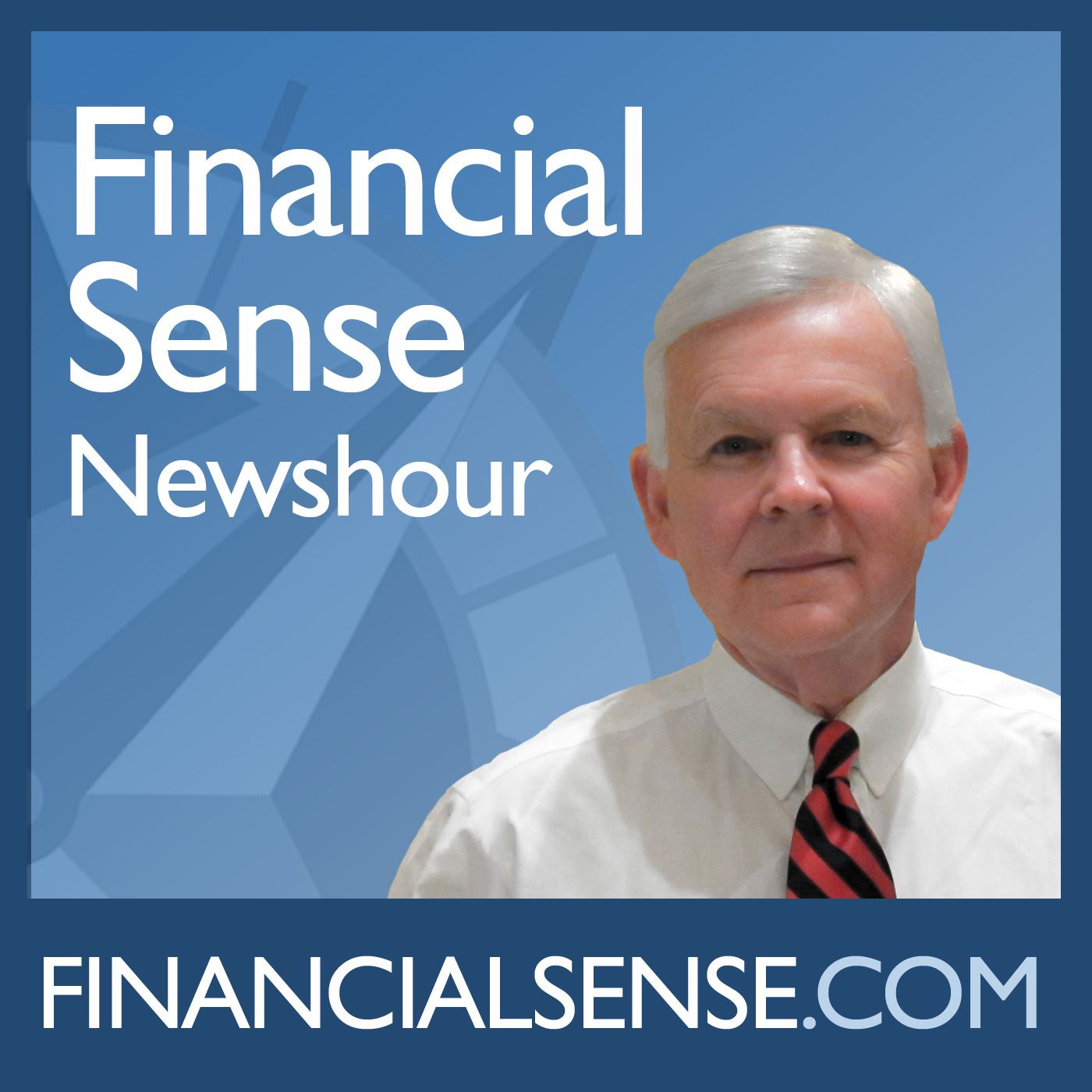 Financial Sense NewshourDiane Coyle GDP: A Brief But Affectionate History. 2018-01-03The Difficulty in Measuring the Immense Complexity of Our Modern Economy. Jim welcomes Diane Coyle, who heads Enlightenment Economics, a UK consultancy specializing in the economic and social effects of new technologies. In her latest book, GDP: A Brief But Affectionate History, Diane explains the inherent difficulty in measuring the immense complexity of our modern economy and how technological innovation, the predominance of services, and other qualitative factors are leading many groups to question the validity of GDP as an accurate figure. She also discusses why hedonic pricing was invented to try and solve the problem of measuring the exploding...2018-01-0326 min
Financial Sense NewshourDiane Coyle GDP: A Brief But Affectionate History. 2018-01-03The Difficulty in Measuring the Immense Complexity of Our Modern Economy. Jim welcomes Diane Coyle, who heads Enlightenment Economics, a UK consultancy specializing in the economic and social effects of new technologies. In her latest book, GDP: A Brief But Affectionate History, Diane explains the inherent difficulty in measuring the immense complexity of our modern economy and how technological innovation, the predominance of services, and other qualitative factors are leading many groups to question the validity of GDP as an accurate figure. She also discusses why hedonic pricing was invented to try and solve the problem of measuring the exploding...2018-01-0326 min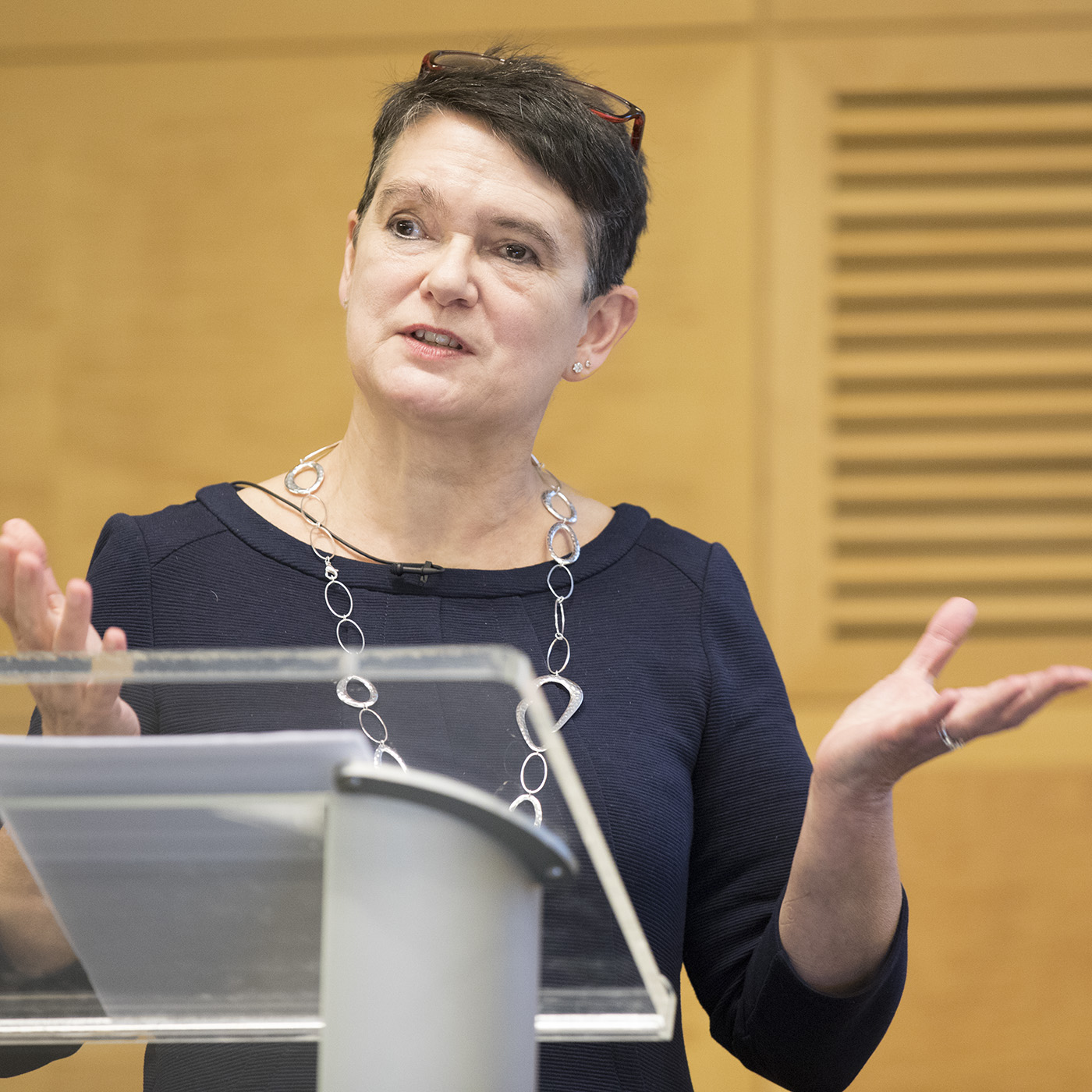 IMF PodcastsDiane Coyle on the Shortcomings of GDPGross domestic product, or GDP, is the one statistic that almost everyone knows is used to measure economic growth. But in this podcast, economist Diane Coyle suggests GDP may be a poor measure of prosperity. With all the technological advances in recent years one would expect that economies have become more productive. But when measured in GDP the numbers show the opposite is true. Coyle refers to this phenomenon as the productivity puzzle, and says the mismeasurement of digital activities within the economy has a lot to do with it. Coyle is Professor of Economics at the University of...2017-12-0812 min
IMF PodcastsDiane Coyle on the Shortcomings of GDPGross domestic product, or GDP, is the one statistic that almost everyone knows is used to measure economic growth. But in this podcast, economist Diane Coyle suggests GDP may be a poor measure of prosperity. With all the technological advances in recent years one would expect that economies have become more productive. But when measured in GDP the numbers show the opposite is true. Coyle refers to this phenomenon as the productivity puzzle, and says the mismeasurement of digital activities within the economy has a lot to do with it. Coyle is Professor of Economics at the University of...2017-12-0812 min VoxTalk VaultsRedefining GDPDiane Coyle, Jonathan Haskel interviewed by Tim Phillips, 21 November 2017
GDP is the default indicator we use to measure how well or bad a country is doing. Diane Coyle and Jonathan Haskel discuss how factors such as technological change, skills, or the economic structure should be taken into account. They jointly won the first Indigo Prize in October 2017, a competition asking participants to think about a new GDP measure.
2017-11-2114 min
VoxTalk VaultsRedefining GDPDiane Coyle, Jonathan Haskel interviewed by Tim Phillips, 21 November 2017
GDP is the default indicator we use to measure how well or bad a country is doing. Diane Coyle and Jonathan Haskel discuss how factors such as technological change, skills, or the economic structure should be taken into account. They jointly won the first Indigo Prize in October 2017, a competition asking participants to think about a new GDP measure.
2017-11-2114 min alaninbelfast#niwellbeing @DianeCoyle1859 on GDP and Measuring What Matters + response by @CllrJohnBarryProf Diane Coyle's lecture on Measuring What Matters followed by a response from Prof John Barry. This was the annual Donal Nevin lecture organised by the Nevin Economic Research Institute (NERI). Blog post and many of the accompanying slides at http://sluggerotoole.com/2016/12/12/does-gdp-measure-what-matters-prof-diane-coyle-delivers-donal-nevin-lecture/2016-12-1257 min
alaninbelfast#niwellbeing @DianeCoyle1859 on GDP and Measuring What Matters + response by @CllrJohnBarryProf Diane Coyle's lecture on Measuring What Matters followed by a response from Prof John Barry. This was the annual Donal Nevin lecture organised by the Nevin Economic Research Institute (NERI). Blog post and many of the accompanying slides at http://sluggerotoole.com/2016/12/12/does-gdp-measure-what-matters-prof-diane-coyle-delivers-donal-nevin-lecture/2016-12-1257 min Slugger O'Toole#niwellbeing @DianeCoyle1859 on GDP and Measuring What Matters + response by @CllrJohnBarryProf Diane Coyle's lecture on Measuring What Matters followed by a response from Prof John Barry. This was the annual Donal Nevin lecture organised by the Nevin Economic Research Institute (NERI). Blog post and many of the accompanying slides at http://sluggerotoole.com/2016/12/12/does-gdp-measure-what-matters-prof-diane-coyle-delivers-donal-nevin-lecture/2016-12-1257 min
Slugger O'Toole#niwellbeing @DianeCoyle1859 on GDP and Measuring What Matters + response by @CllrJohnBarryProf Diane Coyle's lecture on Measuring What Matters followed by a response from Prof John Barry. This was the annual Donal Nevin lecture organised by the Nevin Economic Research Institute (NERI). Blog post and many of the accompanying slides at http://sluggerotoole.com/2016/12/12/does-gdp-measure-what-matters-prof-diane-coyle-delivers-donal-nevin-lecture/2016-12-1257 min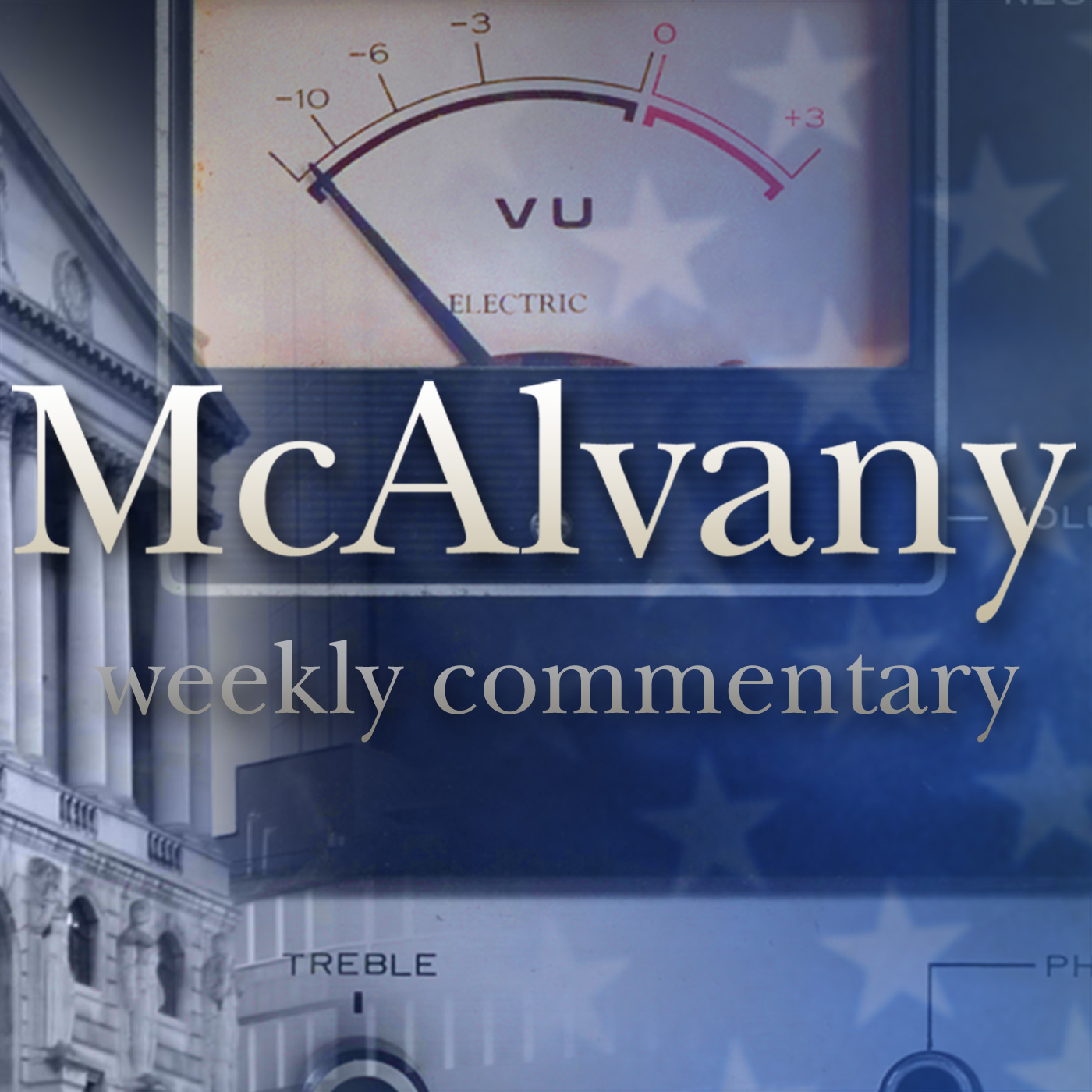 PodCasts Archives - McAlvany Weekly CommentaryDiane Coyle on GDP: Rethinking the UncountableMcAlvany Weekly Commentary
About this week’s show: GDP is not science (not even close), but is it the best we’ve got? People don’t pay nearly enough attention to GDP’s great margin of error Watch out for false Election Year adjustments Click Here To Follow Diane on Twitter About the guest: Diane Coyle is an economist and a former […]
The post Diane Coyle on GDP: Rethinking the Uncountable appeared first on McAlvany Weekly Commentary.2016-08-3100 min
PodCasts Archives - McAlvany Weekly CommentaryDiane Coyle on GDP: Rethinking the UncountableMcAlvany Weekly Commentary
About this week’s show: GDP is not science (not even close), but is it the best we’ve got? People don’t pay nearly enough attention to GDP’s great margin of error Watch out for false Election Year adjustments Click Here To Follow Diane on Twitter About the guest: Diane Coyle is an economist and a former […]
The post Diane Coyle on GDP: Rethinking the Uncountable appeared first on McAlvany Weekly Commentary.2016-08-3100 min VoxTalk VaultsBrexit and GlobalisationDiane Coyle interviewed by Bob Denham, 05 August 2016
How much was Brexit a result of the UK’s industrialised regions losing out from globalisation? Bob Denham (Econ Films) talks to Diane Coyle (University of Manchester) to discuss the decimation of communities in the late 80s and early 90s, as well as the failure of policy-makers to fix this ever since.2016-08-0508 min
VoxTalk VaultsBrexit and GlobalisationDiane Coyle interviewed by Bob Denham, 05 August 2016
How much was Brexit a result of the UK’s industrialised regions losing out from globalisation? Bob Denham (Econ Films) talks to Diane Coyle (University of Manchester) to discuss the decimation of communities in the late 80s and early 90s, as well as the failure of policy-makers to fix this ever since.2016-08-0508 min Economic Rockstar069: Diane Coyle on GDP, Its Shortcomings and Alternative MeasuresDiane Coyle is Professor of Economics at the University of Manchester and runs the consultancy Enlightenment Economics.
Diane specialises in competition analysis and the economics of new technologies and globalisation.
Diane is the author of several books, including GDP: A Brief But Affectionate History, The Economics of Enough, The Soulful Science, Sex, Drugs and Economics and Paradoxes of Prosperity.
Diane has a PhD from Harvard and was awarded the OBE in January 2009.
In this episode you will learn:
what is GDP and how it is measured.
the complications with understanding t...2016-01-2100 min
Economic Rockstar069: Diane Coyle on GDP, Its Shortcomings and Alternative MeasuresDiane Coyle is Professor of Economics at the University of Manchester and runs the consultancy Enlightenment Economics.
Diane specialises in competition analysis and the economics of new technologies and globalisation.
Diane is the author of several books, including GDP: A Brief But Affectionate History, The Economics of Enough, The Soulful Science, Sex, Drugs and Economics and Paradoxes of Prosperity.
Diane has a PhD from Harvard and was awarded the OBE in January 2009.
In this episode you will learn:
what is GDP and how it is measured.
the complications with understanding t...2016-01-2100 min Autumn 2015 | Public lectures and events | Audio and pdfHow Can the UK Improve Productivity and Still Build the Workforce?Contributor(s): Vince Cable, Professor Diane Coyle, Bronwyn Curtis, Anna Leach | This event marks the official launch of the LSE Business Review blog bringing together a panel of prominent economists to discuss productivity, the UK’s economic future and the road ahead. Vince Cable (@vincecable) was MP for Twickenham from 1997-2015. He was the Liberal Democrat's chief economic spokesperson from 2003-2010, having previously served as Chief Economist for Shell from 1995-1997. He was Business Secretary under the Coalition Government from 2010-2015. He is the author of The Storm and his latest publication After The Storm. Diane Coyle, OBE (@diane1859), is a...2015-12-021h 31
Autumn 2015 | Public lectures and events | Audio and pdfHow Can the UK Improve Productivity and Still Build the Workforce?Contributor(s): Vince Cable, Professor Diane Coyle, Bronwyn Curtis, Anna Leach | This event marks the official launch of the LSE Business Review blog bringing together a panel of prominent economists to discuss productivity, the UK’s economic future and the road ahead. Vince Cable (@vincecable) was MP for Twickenham from 1997-2015. He was the Liberal Democrat's chief economic spokesperson from 2003-2010, having previously served as Chief Economist for Shell from 1995-1997. He was Business Secretary under the Coalition Government from 2010-2015. He is the author of The Storm and his latest publication After The Storm. Diane Coyle, OBE (@diane1859), is a...2015-12-021h 31 Autumn 2015 | Public lectures and events | Audio and pdfGDP: a brief but affectionate historyContributor(s): Professor Diane Coyle | Why did the size of the U.S. economy increase by 3 percent on one day in mid-2013—or Ghana's balloon by 60 percent overnight in 2010? Why did the U.K. financial industry show its fastest expansion ever at the end of 2008—just as the world's financial system went into meltdown? And why was Greece's chief statistician charged with treason in 2013 for apparently doing nothing more than trying to accurately report the size of his country's economy? The answers to all these questions lie in the way we define and measure national economies around the world: gross dome...2015-11-161h 03
Autumn 2015 | Public lectures and events | Audio and pdfGDP: a brief but affectionate historyContributor(s): Professor Diane Coyle | Why did the size of the U.S. economy increase by 3 percent on one day in mid-2013—or Ghana's balloon by 60 percent overnight in 2010? Why did the U.K. financial industry show its fastest expansion ever at the end of 2008—just as the world's financial system went into meltdown? And why was Greece's chief statistician charged with treason in 2013 for apparently doing nothing more than trying to accurately report the size of his country's economy? The answers to all these questions lie in the way we define and measure national economies around the world: gross dome...2015-11-161h 03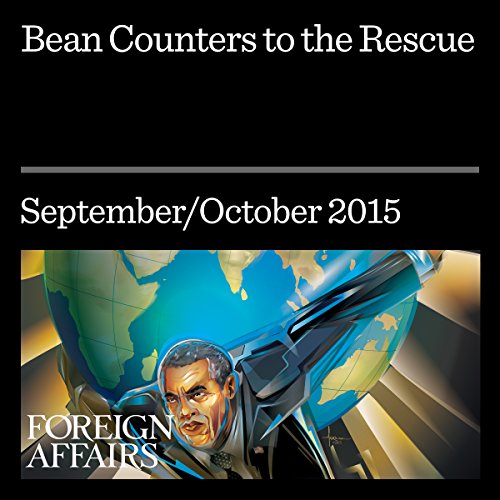 Listen to Audiobook in Newspapers & Magazines, News & CultureBean Counters to the Rescue by Diane Coyle | Free AudiobookListen to full audiobooks for free on :https://hotaudiobook.com/freeTitle: Bean Counters to the Rescue
Author: Diane Coyle
Narrator: Kevin Stillwell
Format: Unabridged
Length: 17 mins
Language: English
Release date: 08-17-15
Publisher: Foreign Affairs
Genres: Newspapers & Magazines, News & Culture
Summary:
What is a company worth? On its latest balance sheet, Apple showed assets of $261 billion, including $8.7 billion of intangibles, such as the positive views of the company held by consumers and investors.
©2015 Foreign Affairs (P)2015 Audible, Inc.
Contact: info@hotaudiobook.com2015-08-1717 min
Listen to Audiobook in Newspapers & Magazines, News & CultureBean Counters to the Rescue by Diane Coyle | Free AudiobookListen to full audiobooks for free on :https://hotaudiobook.com/freeTitle: Bean Counters to the Rescue
Author: Diane Coyle
Narrator: Kevin Stillwell
Format: Unabridged
Length: 17 mins
Language: English
Release date: 08-17-15
Publisher: Foreign Affairs
Genres: Newspapers & Magazines, News & Culture
Summary:
What is a company worth? On its latest balance sheet, Apple showed assets of $261 billion, including $8.7 billion of intangibles, such as the positive views of the company held by consumers and investors.
©2015 Foreign Affairs (P)2015 Audible, Inc.
Contact: info@hotaudiobook.com2015-08-1717 min IFN-poddenGDP is not enough – Or how to measure life, with Diane Coyle Diane Coyle, professor at the University of Manchester with a PhD in economics from Harvard, is one of the internationally renowned scholars in the debate on how we best define and measure national economies. She has authored a number of books, the latest one titled GDP: A Brief but Affectionate History (Princeton University Press). The book explains why even small changes in GDP can influence major political decisions and determine whether countries can keep borrowing or be thrown into recession. Coyle makes the case that GDP was a good measure for the twentieth century but is increasingly inappropriate for...2015-05-2826 min
IFN-poddenGDP is not enough – Or how to measure life, with Diane Coyle Diane Coyle, professor at the University of Manchester with a PhD in economics from Harvard, is one of the internationally renowned scholars in the debate on how we best define and measure national economies. She has authored a number of books, the latest one titled GDP: A Brief but Affectionate History (Princeton University Press). The book explains why even small changes in GDP can influence major political decisions and determine whether countries can keep borrowing or be thrown into recession. Coyle makes the case that GDP was a good measure for the twentieth century but is increasingly inappropriate for...2015-05-2826 min Summer 2014 | Public lectures and events | VideoA 21st Century BBCContributor(s): Diane Coyle | Acting BBC Trust Chair Diane Coyle considers how the BBC can meet the challenge of providing a universal service while media channels proliferate and its audience becomes more and more diverse. She will also examine the BBC's relationship with the state and ask how its independence is best protected. Born and raised in the North West, Diane was educated at Oxford and Harvard, where she did a PhD in economics. She has worked as an economist and journalist. Economics editor for The Independent for eight years, she left in 2001 to set up her own consultancy specialising...2014-06-2358 min
Summer 2014 | Public lectures and events | VideoA 21st Century BBCContributor(s): Diane Coyle | Acting BBC Trust Chair Diane Coyle considers how the BBC can meet the challenge of providing a universal service while media channels proliferate and its audience becomes more and more diverse. She will also examine the BBC's relationship with the state and ask how its independence is best protected. Born and raised in the North West, Diane was educated at Oxford and Harvard, where she did a PhD in economics. She has worked as an economist and journalist. Economics editor for The Independent for eight years, she left in 2001 to set up her own consultancy specialising...2014-06-2358 min Summer 2014 | Public lectures and events | Audio and pdfA 21st Century BBCContributor(s): Diane Coyle | Acting BBC Trust Chair Diane Coyle considers how the BBC can meet the challenge of providing a universal service while media channels proliferate and its audience becomes more and more diverse. She will also examine the BBC's relationship with the state and ask how its independence is best protected. Born and raised in the North West, Diane was educated at Oxford and Harvard, where she did a PhD in economics. She has worked as an economist and journalist. Economics editor for The Independent for eight years, she left in 2001 to set up her own consultancy specialising...2014-06-2358 min
Summer 2014 | Public lectures and events | Audio and pdfA 21st Century BBCContributor(s): Diane Coyle | Acting BBC Trust Chair Diane Coyle considers how the BBC can meet the challenge of providing a universal service while media channels proliferate and its audience becomes more and more diverse. She will also examine the BBC's relationship with the state and ask how its independence is best protected. Born and raised in the North West, Diane was educated at Oxford and Harvard, where she did a PhD in economics. She has worked as an economist and journalist. Economics editor for The Independent for eight years, she left in 2001 to set up her own consultancy specialising...2014-06-2358 min 2014 | LSE Public lectures and events | VideoA 21st Century BBCContributor(s): Diane Coyle | Acting BBC Trust Chair Diane Coyle considers how the BBC can meet the challenge of providing a universal service while media channels proliferate and its audience becomes more and more diverse. She will also examine the BBC's relationship with the state and ask how its independence is best protected. Born and raised in the North West, Diane was educated at Oxford and Harvard, where she did a PhD in economics. She has worked as an economist and journalist. Economics editor for The Independent for eight years, she left in 2001 to set up her own consultancy specialising...2014-06-2358 min
2014 | LSE Public lectures and events | VideoA 21st Century BBCContributor(s): Diane Coyle | Acting BBC Trust Chair Diane Coyle considers how the BBC can meet the challenge of providing a universal service while media channels proliferate and its audience becomes more and more diverse. She will also examine the BBC's relationship with the state and ask how its independence is best protected. Born and raised in the North West, Diane was educated at Oxford and Harvard, where she did a PhD in economics. She has worked as an economist and journalist. Economics editor for The Independent for eight years, she left in 2001 to set up her own consultancy specialising...2014-06-2358 min 2014 | LSE Public lectures and events | Audio and pdfA 21st Century BBCContributor(s): Diane Coyle | Acting BBC Trust Chair Diane Coyle considers how the BBC can meet the challenge of providing a universal service while media channels proliferate and its audience becomes more and more diverse. She will also examine the BBC's relationship with the state and ask how its independence is best protected. Born and raised in the North West, Diane was educated at Oxford and Harvard, where she did a PhD in economics. She has worked as an economist and journalist. Economics editor for The Independent for eight years, she left in 2001 to set up her own consultancy specialising...2014-06-2358 min
2014 | LSE Public lectures and events | Audio and pdfA 21st Century BBCContributor(s): Diane Coyle | Acting BBC Trust Chair Diane Coyle considers how the BBC can meet the challenge of providing a universal service while media channels proliferate and its audience becomes more and more diverse. She will also examine the BBC's relationship with the state and ask how its independence is best protected. Born and raised in the North West, Diane was educated at Oxford and Harvard, where she did a PhD in economics. She has worked as an economist and journalist. Economics editor for The Independent for eight years, she left in 2001 to set up her own consultancy specialising...2014-06-2358 min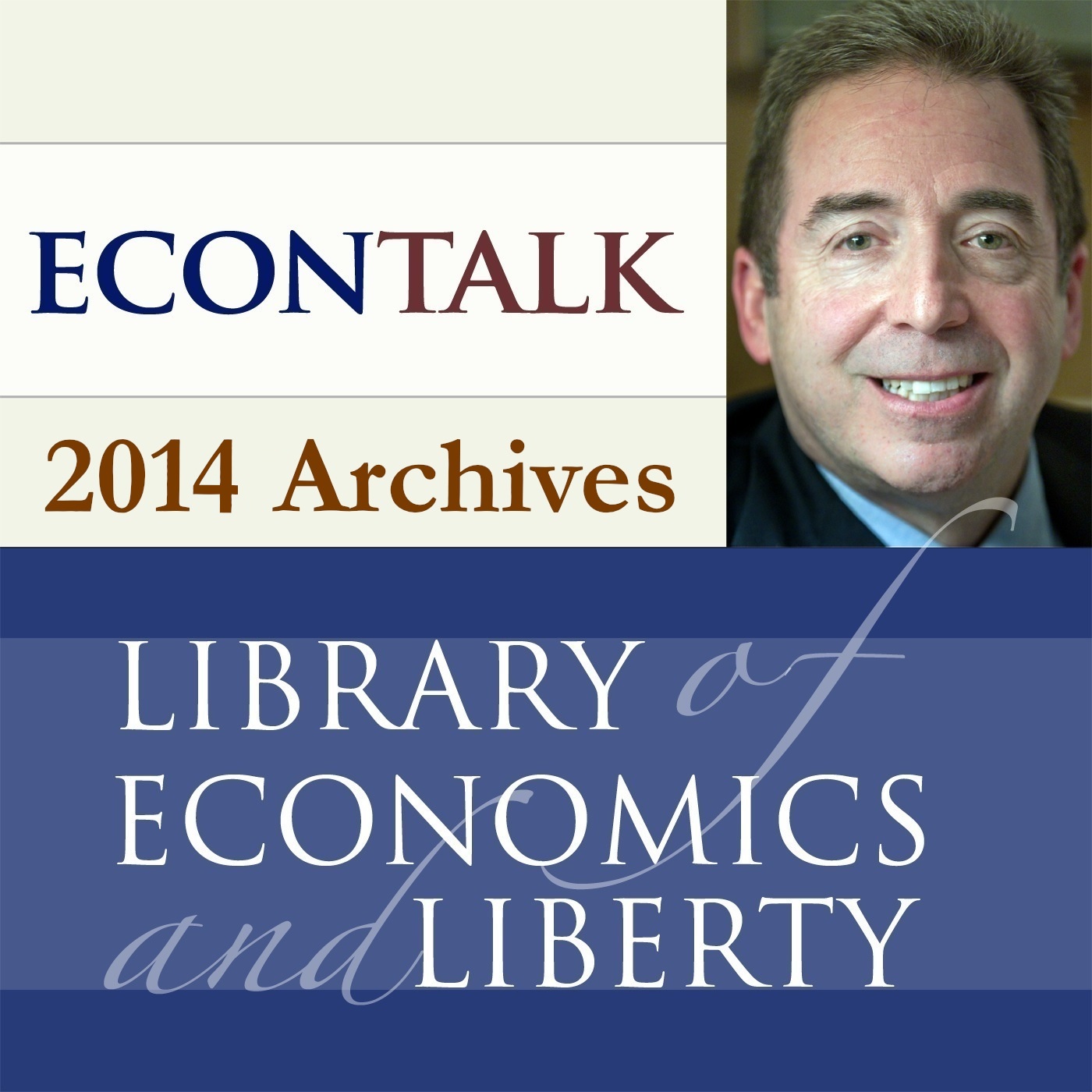 EconTalk Archives, 2014Diane Coyle on GDPDiane Coyle, author of GDP: A Brief but Affectionate History, talks with EconTalk host Russ Roberts about the history of GDP, its uses, and its abuses. Topics discussed include the origins of GDP in the developed countries, the challenges of measuring the service sector, the challenges of dealing with innovation and product diversity, whether GDP should be supplemented with other measures of human well-being, and the challenges of dealing with internet-based goods that produce a great deal of satisfaction but make a much smaller impact on measured economic activity.2014-04-2800 min
EconTalk Archives, 2014Diane Coyle on GDPDiane Coyle, author of GDP: A Brief but Affectionate History, talks with EconTalk host Russ Roberts about the history of GDP, its uses, and its abuses. Topics discussed include the origins of GDP in the developed countries, the challenges of measuring the service sector, the challenges of dealing with innovation and product diversity, whether GDP should be supplemented with other measures of human well-being, and the challenges of dealing with internet-based goods that produce a great deal of satisfaction but make a much smaller impact on measured economic activity.2014-04-2800 min EconTalkDiane Coyle on GDPDiane Coyle, author of GDP: A Brief but Affectionate History, talks with EconTalk host Russ Roberts about the history of GDP, its uses, and its abuses. Topics discussed include the origins of GDP in the developed countries, the challenges of measuring the service sector, the challenges of dealing with innovation and product diversity, whether GDP should be supplemented with other measures of human well-being, and the challenges of dealing with internet-based goods that produce a great deal of satisfaction but make a much smaller impact on measured economic activity.
2014-04-2858 min
EconTalkDiane Coyle on GDPDiane Coyle, author of GDP: A Brief but Affectionate History, talks with EconTalk host Russ Roberts about the history of GDP, its uses, and its abuses. Topics discussed include the origins of GDP in the developed countries, the challenges of measuring the service sector, the challenges of dealing with innovation and product diversity, whether GDP should be supplemented with other measures of human well-being, and the challenges of dealing with internet-based goods that produce a great deal of satisfaction but make a much smaller impact on measured economic activity.
2014-04-2858 min Rich As A KingDiane ColyeDiane Coyle, professor of economics at Manchester University and author of GDP: A Brief But Affectionate History and The Economics of Enough, talks about measuring economic progress. What is the GDP (gross domestic product), and is it really an accurate benchmark for understanding economic performance? Find out on your favorite personal finance show.
THIS IS A TEST2014-03-2012 min
Rich As A KingDiane ColyeDiane Coyle, professor of economics at Manchester University and author of GDP: A Brief But Affectionate History and The Economics of Enough, talks about measuring economic progress. What is the GDP (gross domestic product), and is it really an accurate benchmark for understanding economic performance? Find out on your favorite personal finance show.
THIS IS A TEST2014-03-2012 min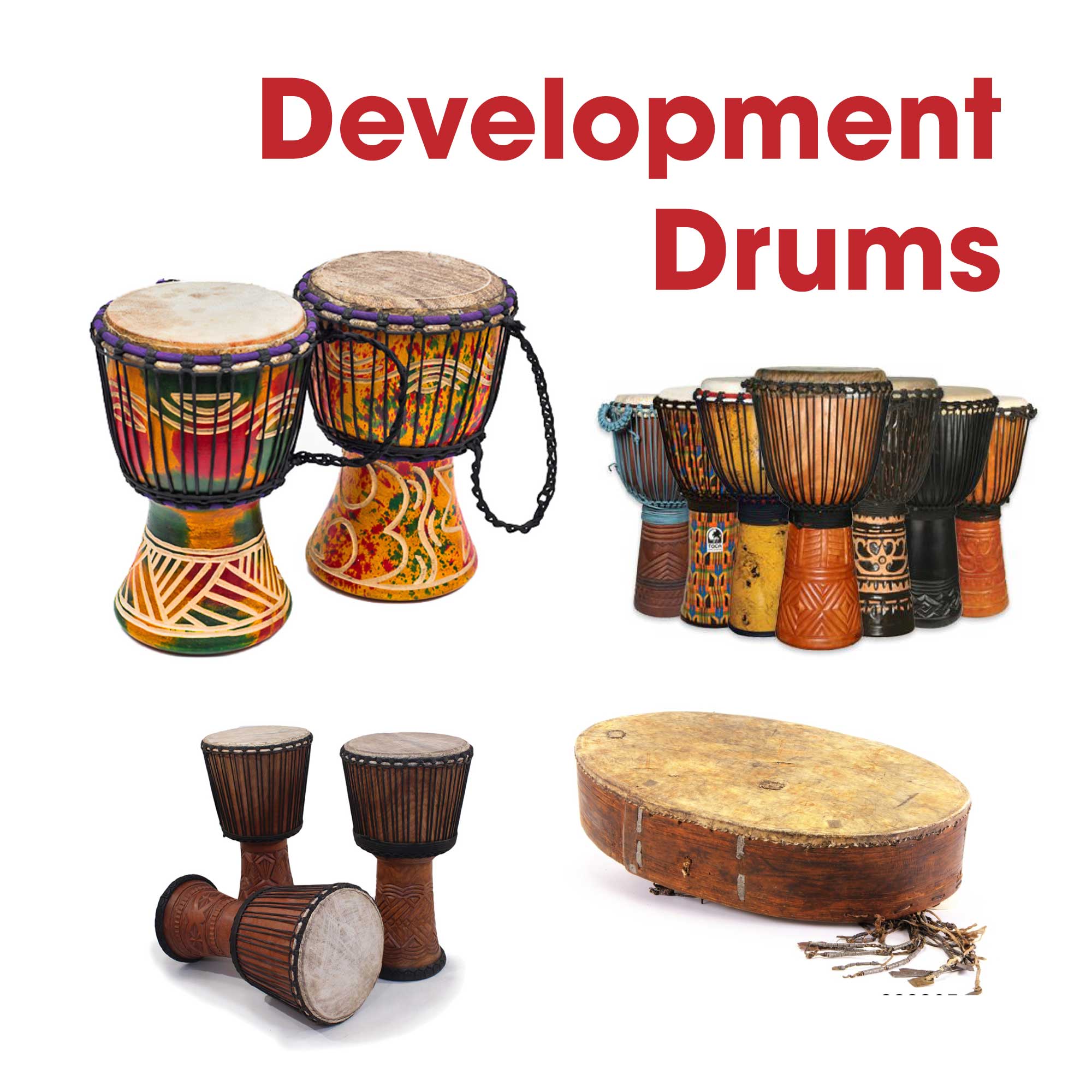 Development DrumsEpisode 34: The Economics Of EnoughIn this episode, Owen talks with author and economist Diane Coyle about her latest book ‘The Economics Of Enough, How To Run The Economy As If The Future Matters’.
In the first section, Diane shares her thoughts on economic growth as a satisfactory goal for economic and social policy, and discusses the measure of Gross Domestic Product in relation to indicators of happiness and welfare.
In addressing the challenges of economic growth, Diane highlights the need for a measure of wealth that transcends money and natural infrastructure to factor in human capital, environmental capit...2012-10-101h 07
Development DrumsEpisode 34: The Economics Of EnoughIn this episode, Owen talks with author and economist Diane Coyle about her latest book ‘The Economics Of Enough, How To Run The Economy As If The Future Matters’.
In the first section, Diane shares her thoughts on economic growth as a satisfactory goal for economic and social policy, and discusses the measure of Gross Domestic Product in relation to indicators of happiness and welfare.
In addressing the challenges of economic growth, Diane highlights the need for a measure of wealth that transcends money and natural infrastructure to factor in human capital, environmental capit...2012-10-101h 07 VoxTalk VaultsWhy teaching economics must now change in light of the crisisDiane Coyle interviewed by Viv Davies, 25 September 2012
Diane Coyle talks to Viv Davies about her recent edited volume on 'What's the use of economics?' They discuss what economists need to bring to their jobs and the way in which education in universities could be improved to fit economic graduates better for the real world. The interview was recorded in London on 22 September 2012.2012-09-2510 min
VoxTalk VaultsWhy teaching economics must now change in light of the crisisDiane Coyle interviewed by Viv Davies, 25 September 2012
Diane Coyle talks to Viv Davies about her recent edited volume on 'What's the use of economics?' They discuss what economists need to bring to their jobs and the way in which education in universities could be improved to fit economic graduates better for the real world. The interview was recorded in London on 22 September 2012.2012-09-2510 min Summer 2012 | Public lectures and events | Audio and pdf"Enough": policies for a sustainable economyContributor(s): Professor Diane Coyle | The world's leading economies are facing many crises. What these crises have in common is a reckless disregard for the future. This lecture examines the policy changes necessary to run the economy for tomorrow as well as today. Diane Coyle runs Enlightenment Economics. She is vice chair of the BBC Trust, and a visiting professor at the University of Manchester.2012-06-1458 min
Summer 2012 | Public lectures and events | Audio and pdf"Enough": policies for a sustainable economyContributor(s): Professor Diane Coyle | The world's leading economies are facing many crises. What these crises have in common is a reckless disregard for the future. This lecture examines the policy changes necessary to run the economy for tomorrow as well as today. Diane Coyle runs Enlightenment Economics. She is vice chair of the BBC Trust, and a visiting professor at the University of Manchester.2012-06-1458 min Summer 2012 | Public lectures and events | Video"Enough": policies for a sustainable economyContributor(s): Professor Diane Coyle | The world's leading economies are facing many crises. What these crises have in common is a reckless disregard for the future. This lecture examines the policy changes necessary to run the economy for tomorrow as well as today. Diane Coyle runs Enlightenment Economics. She is vice chair of the BBC Trust, and a visiting professor at the University of Manchester.2012-06-1458 min
Summer 2012 | Public lectures and events | Video"Enough": policies for a sustainable economyContributor(s): Professor Diane Coyle | The world's leading economies are facing many crises. What these crises have in common is a reckless disregard for the future. This lecture examines the policy changes necessary to run the economy for tomorrow as well as today. Diane Coyle runs Enlightenment Economics. She is vice chair of the BBC Trust, and a visiting professor at the University of Manchester.2012-06-1458 min